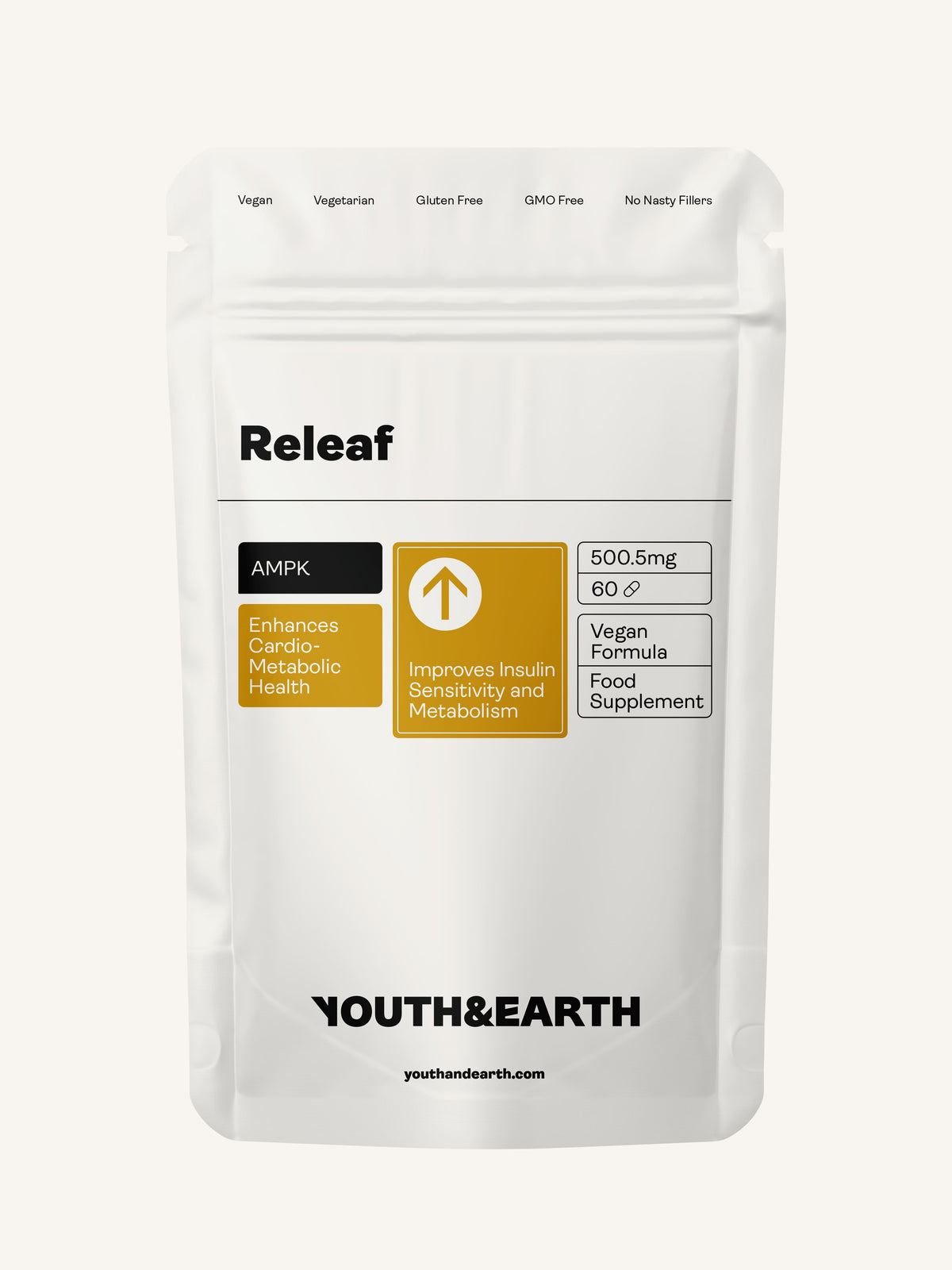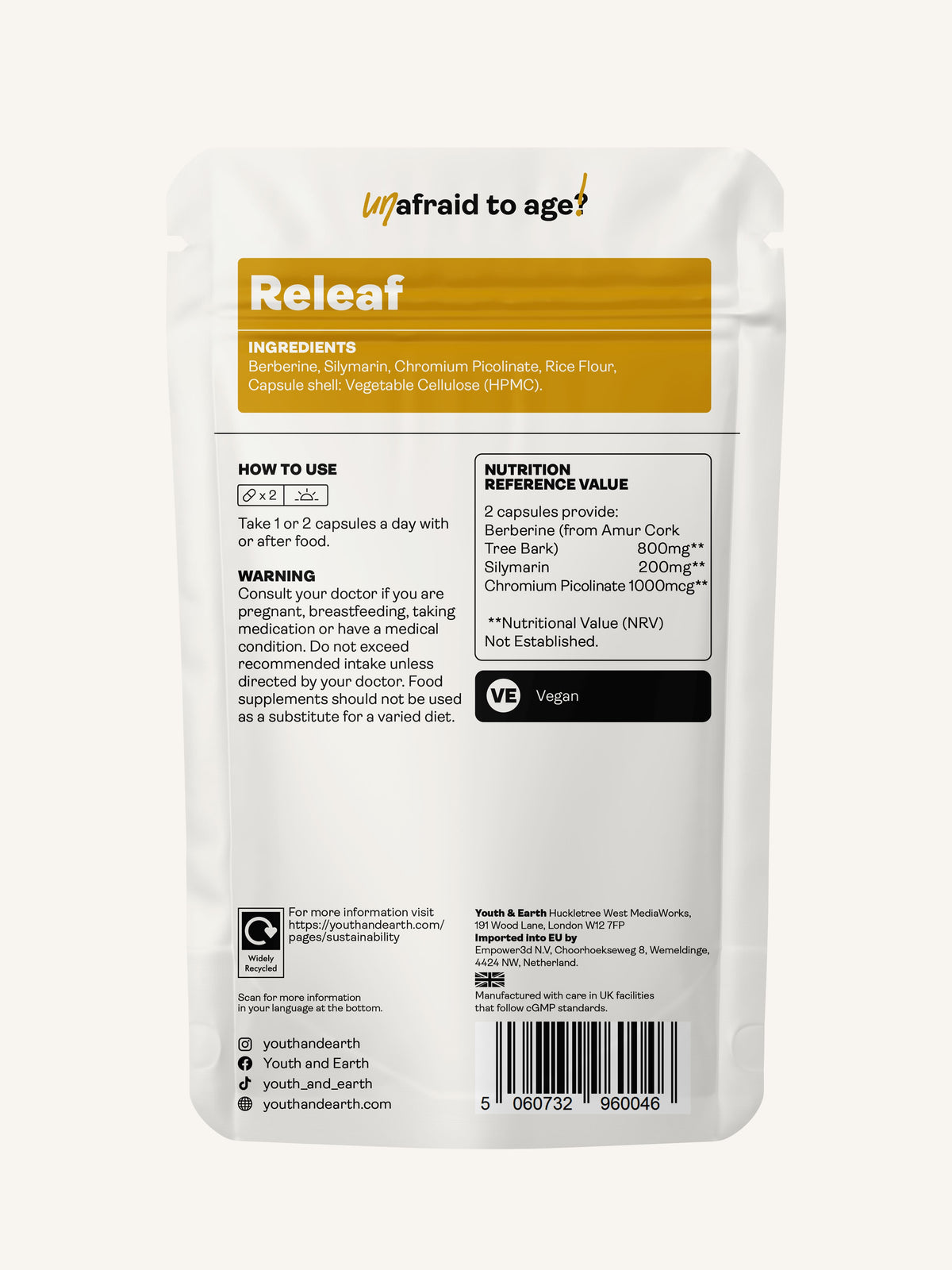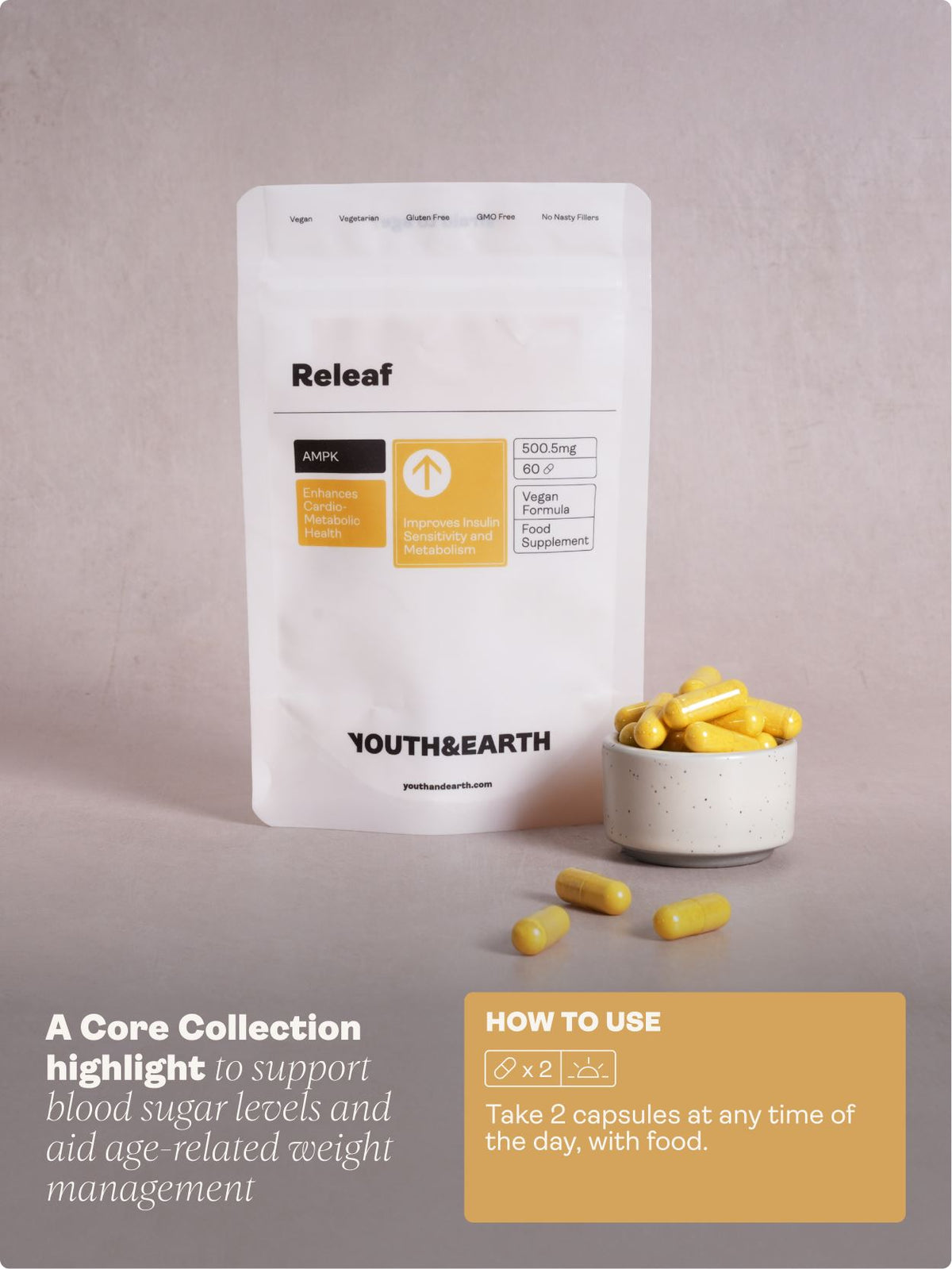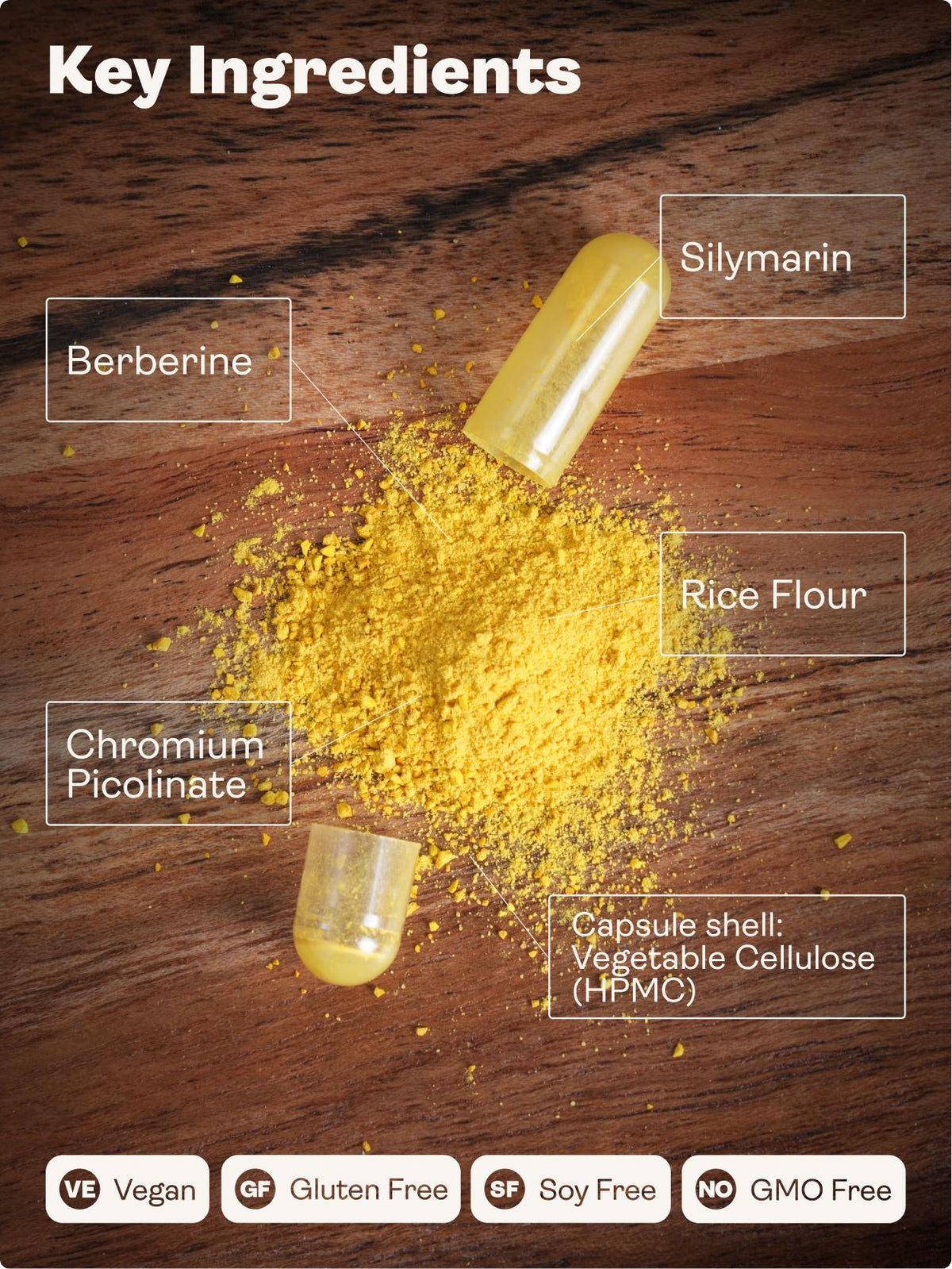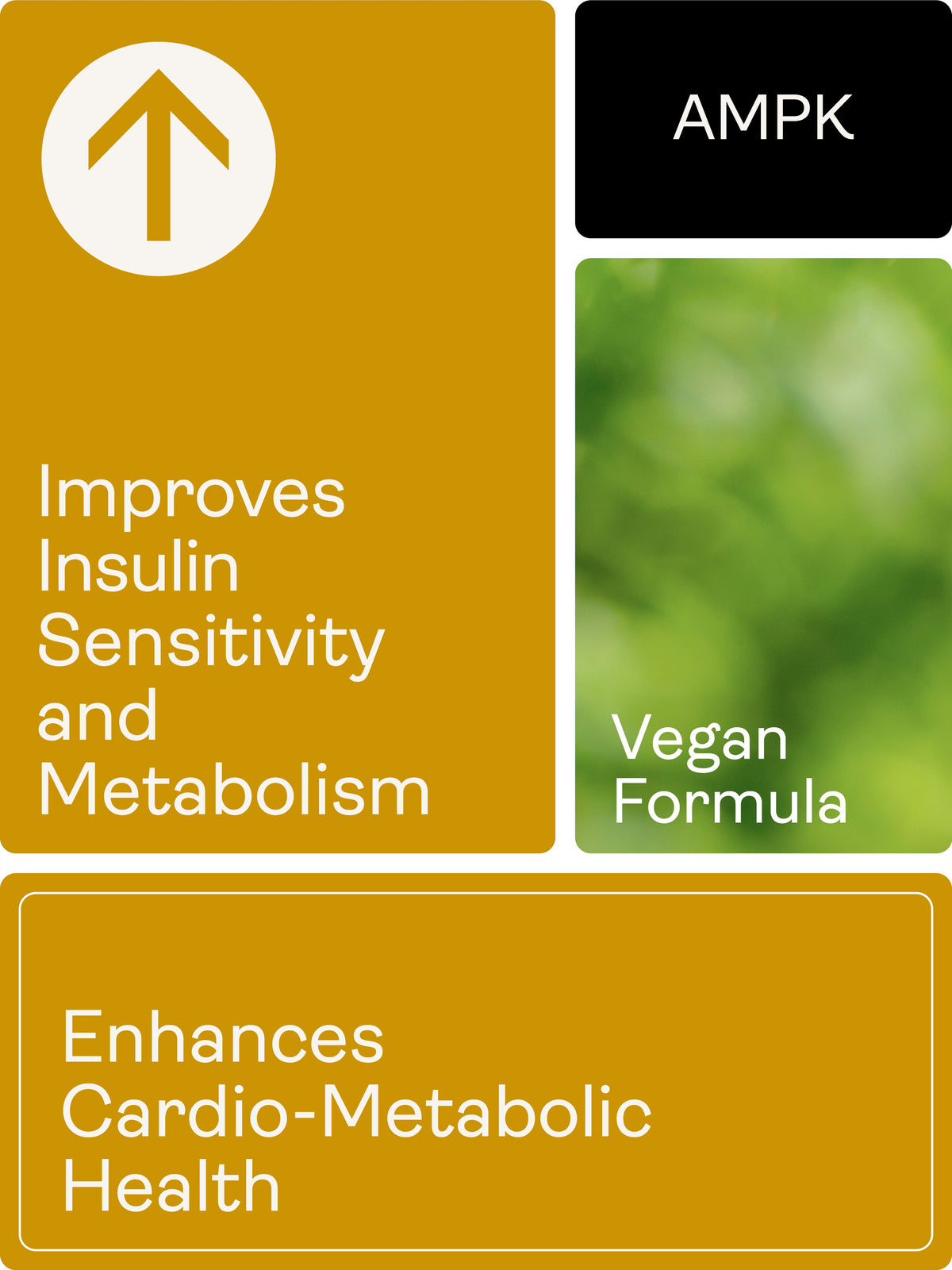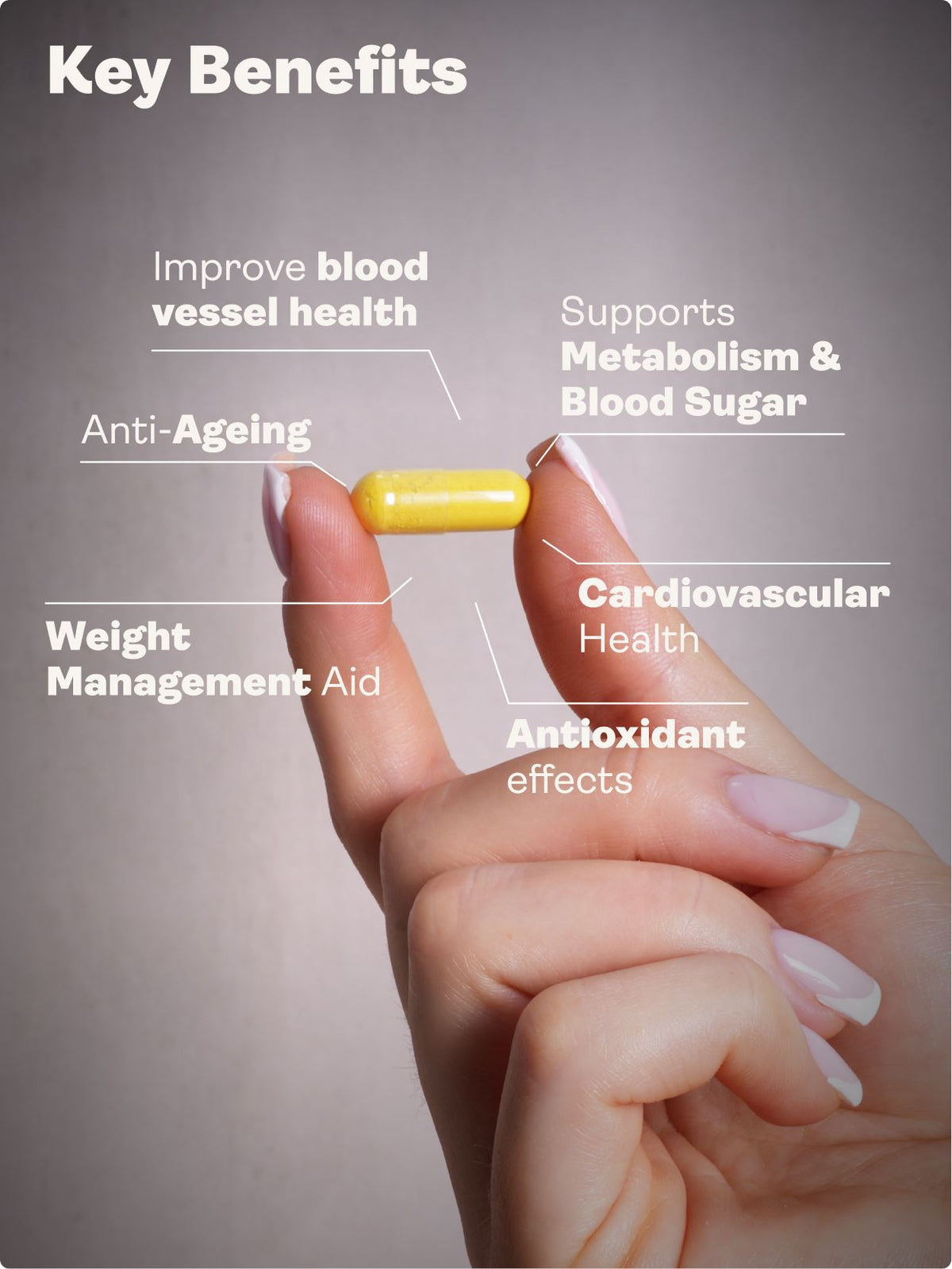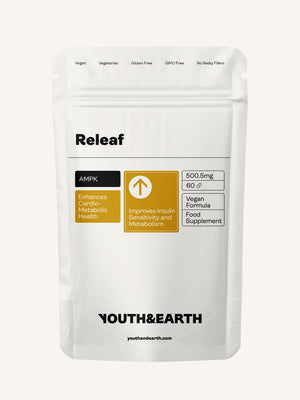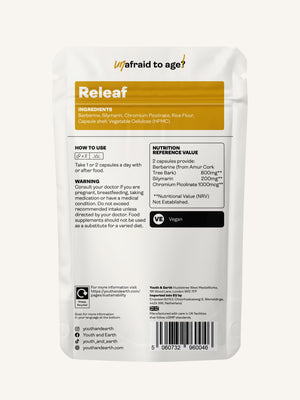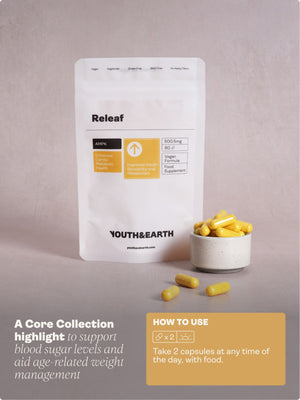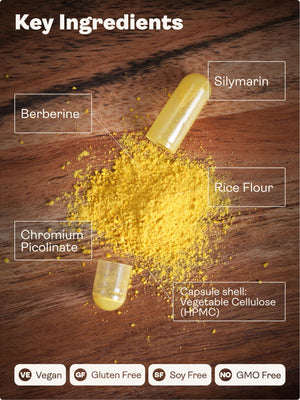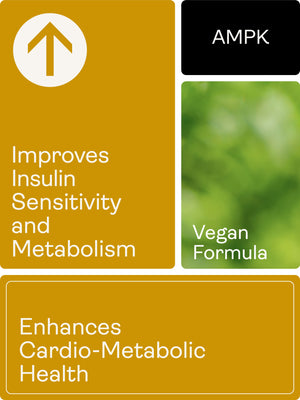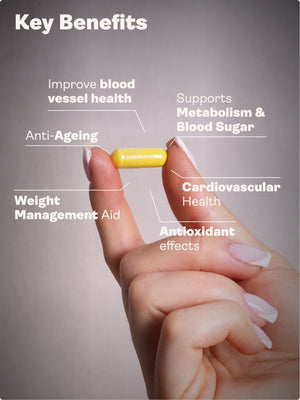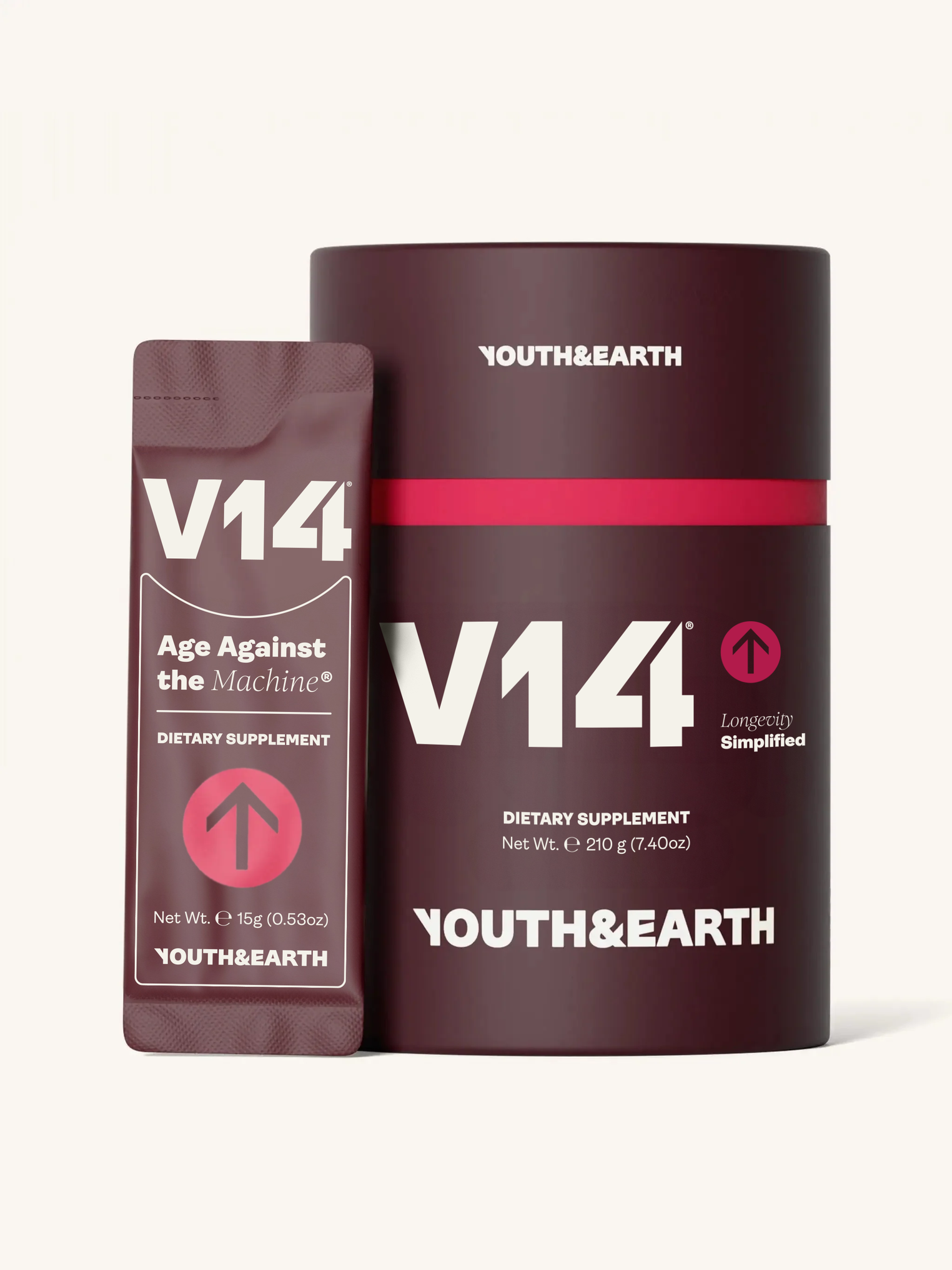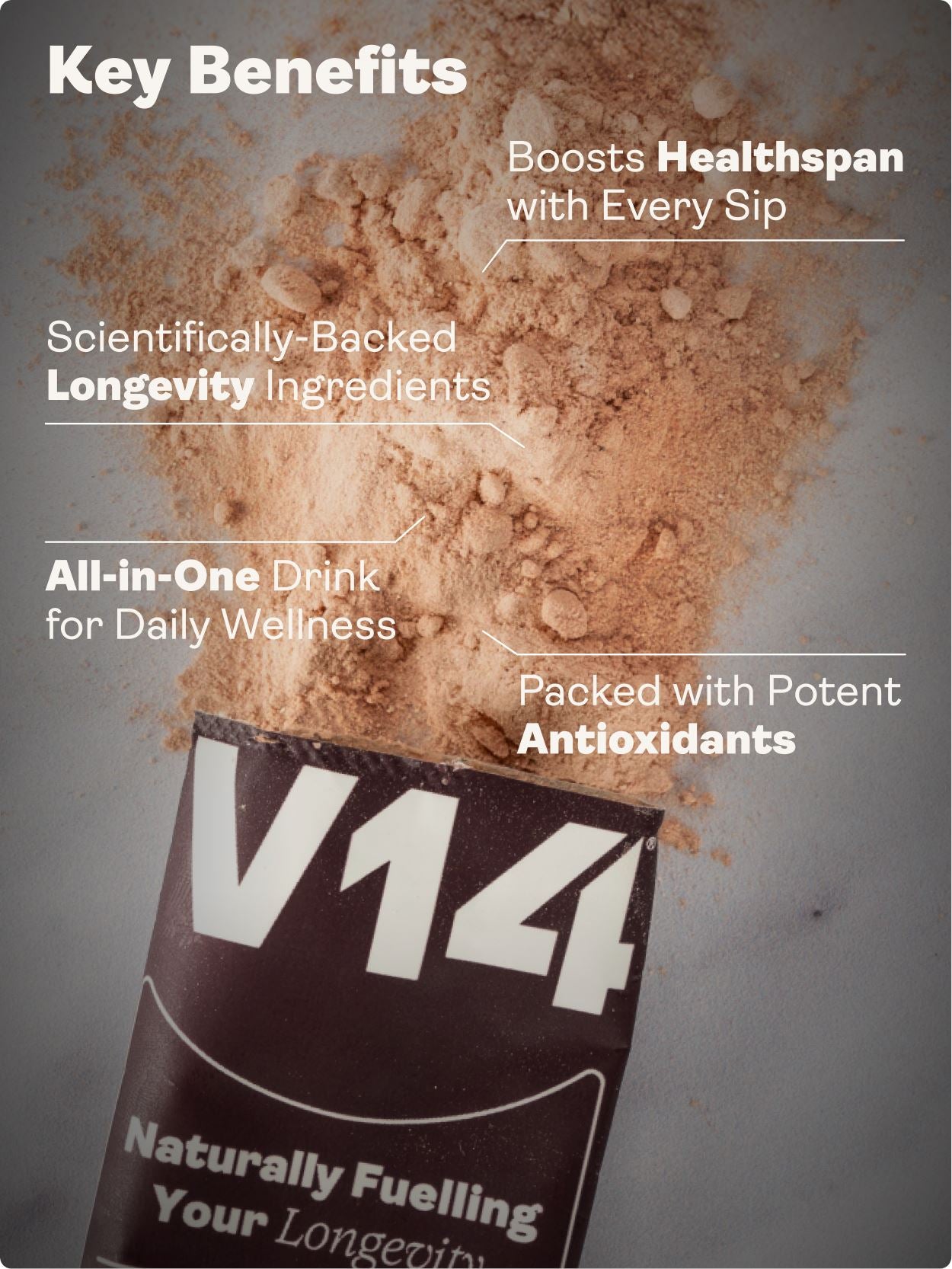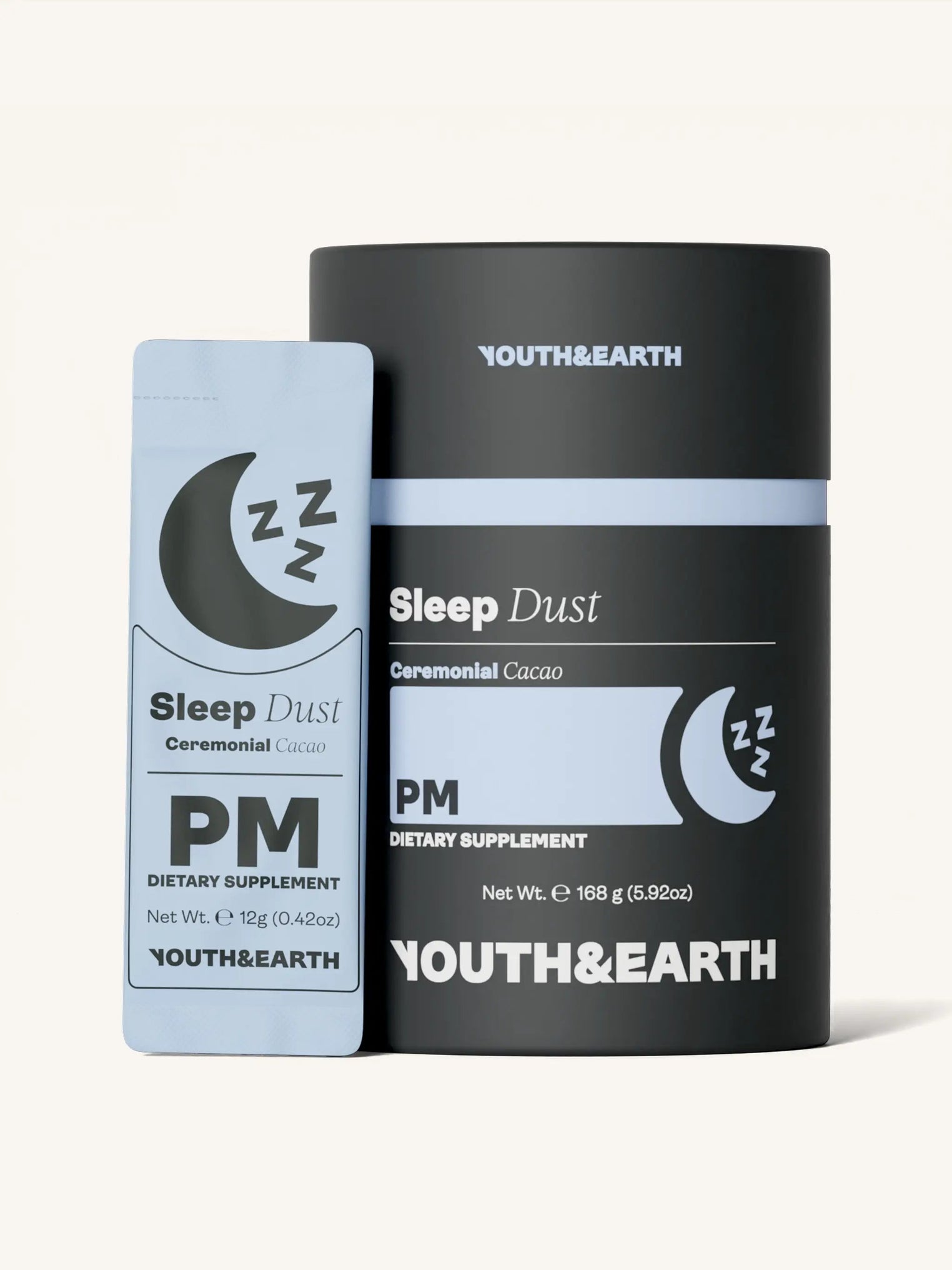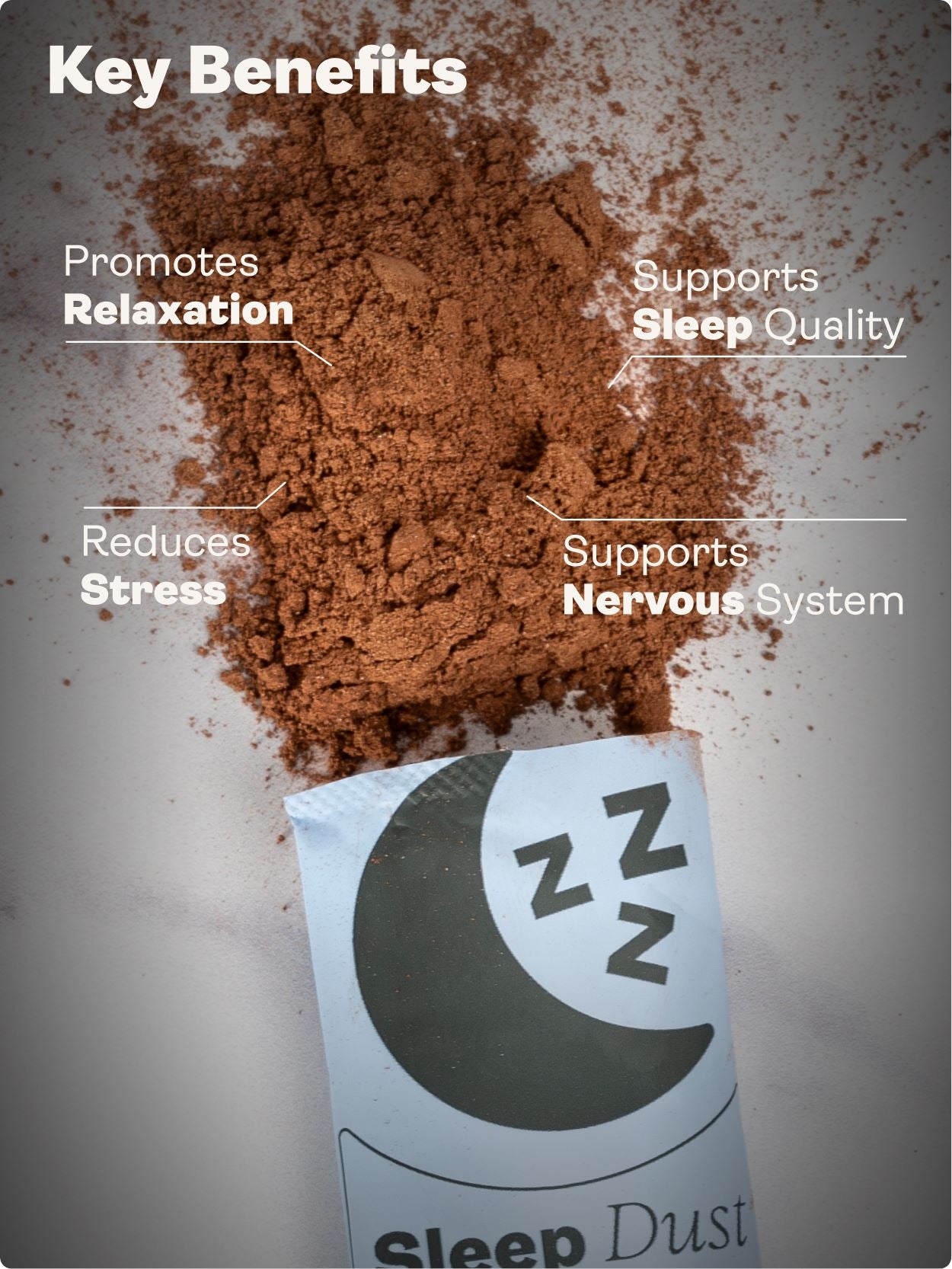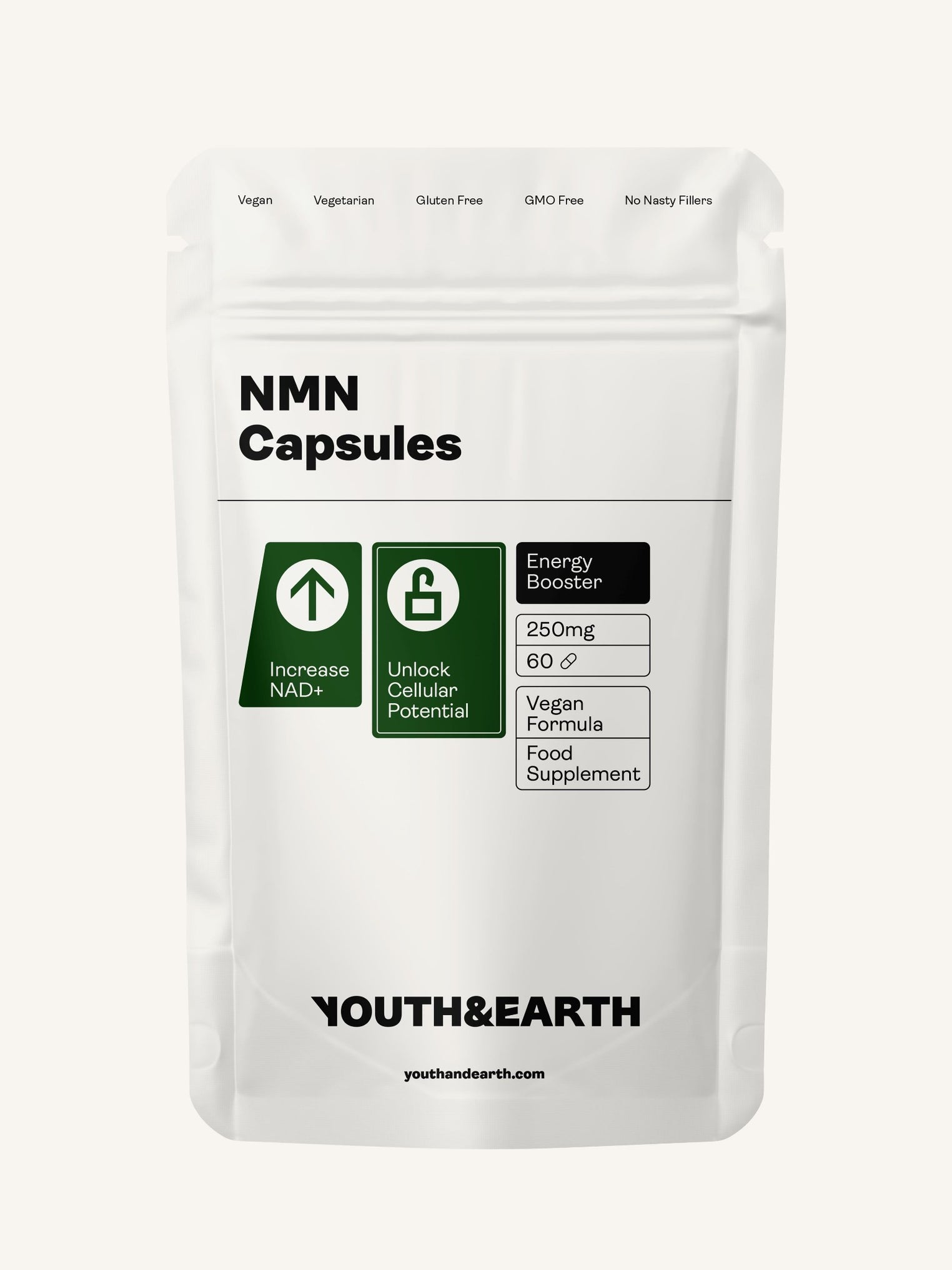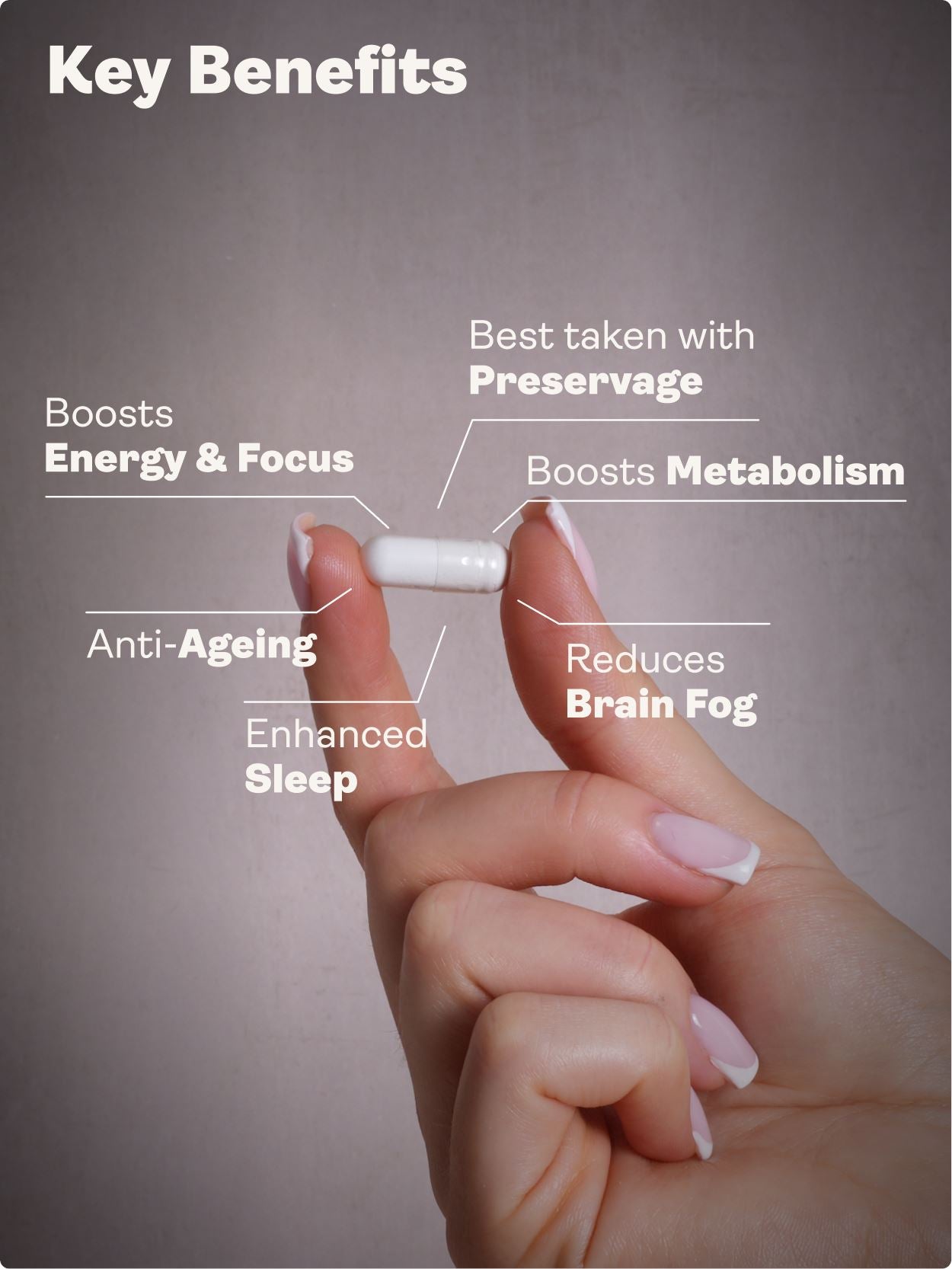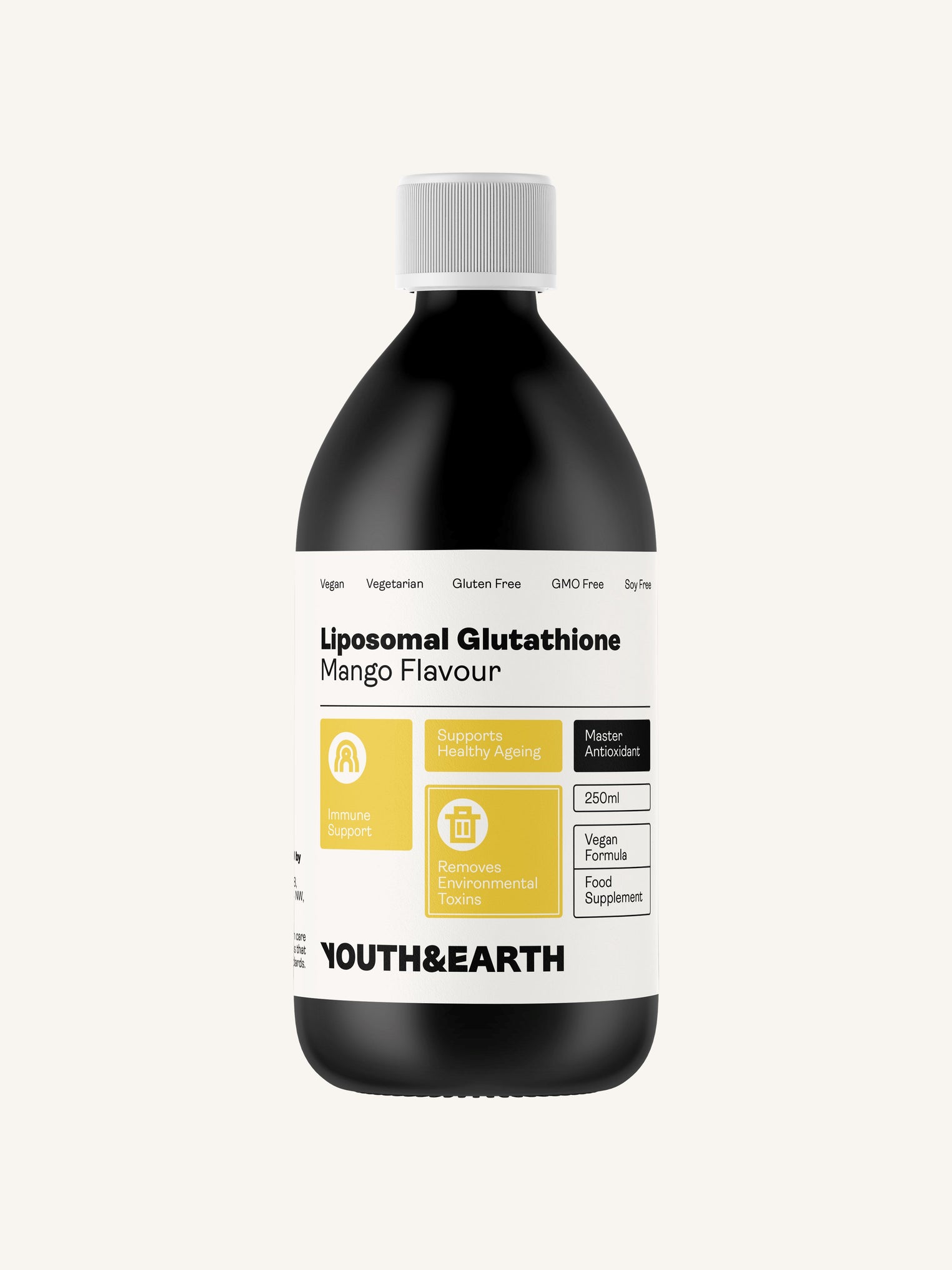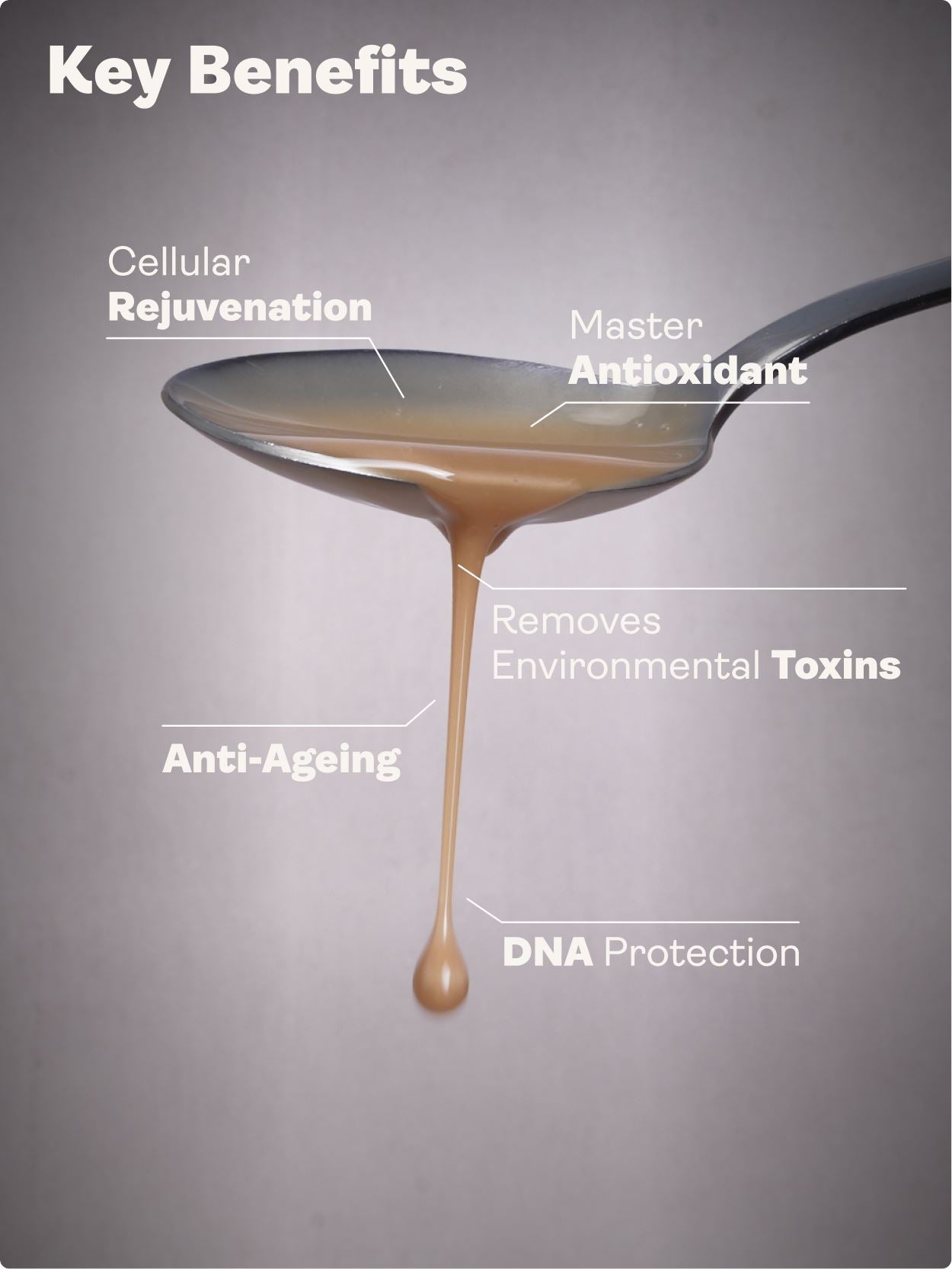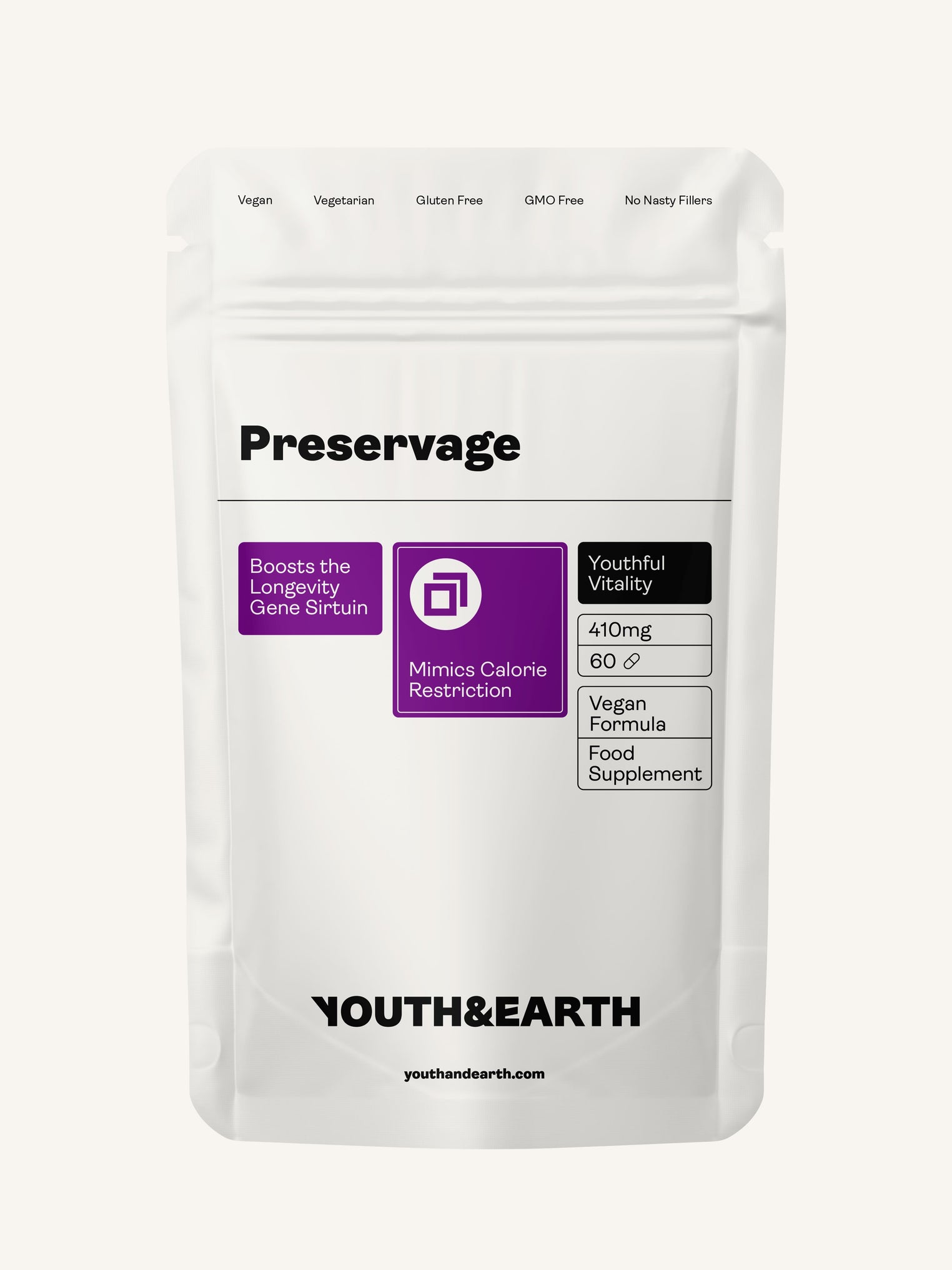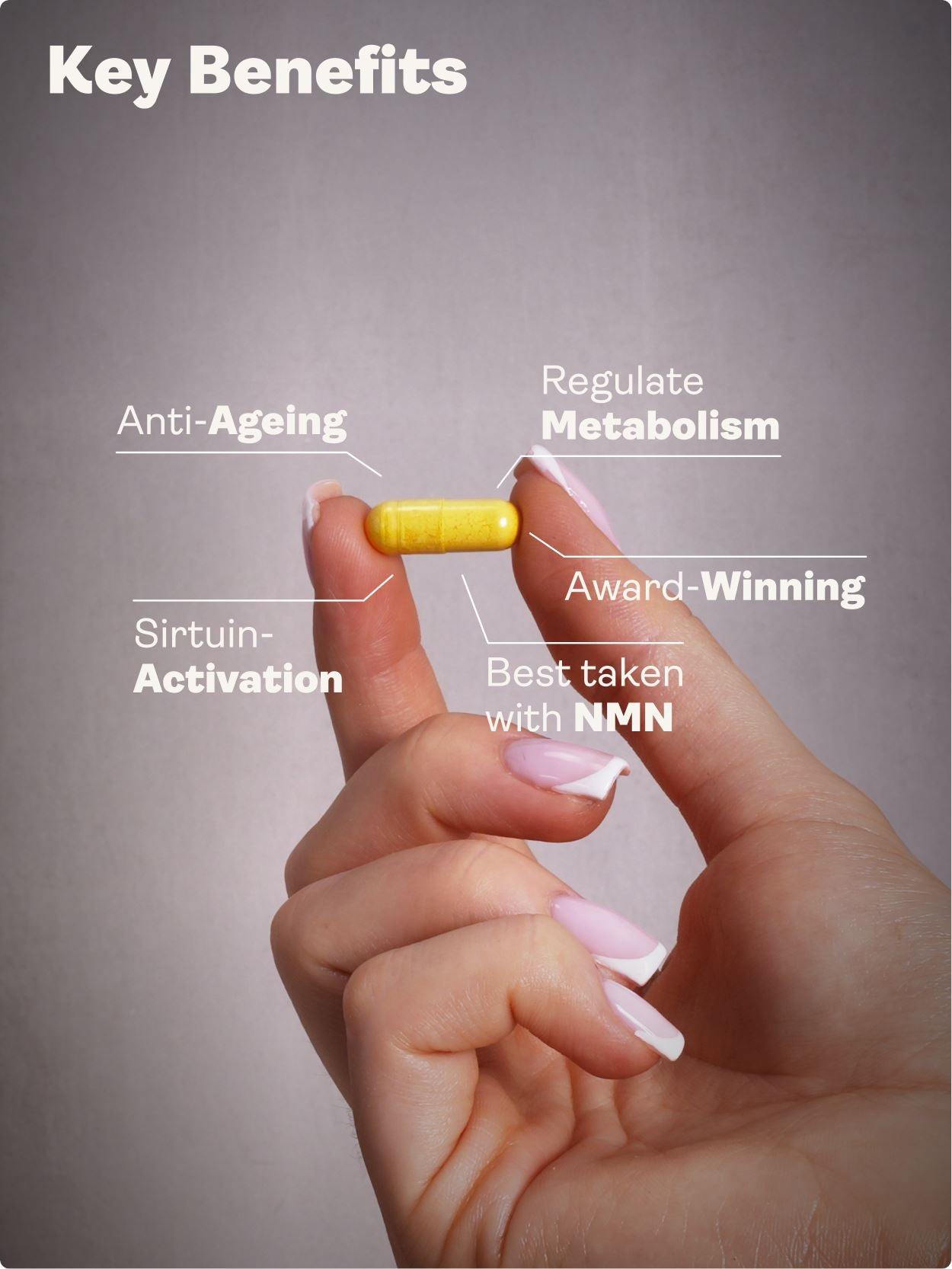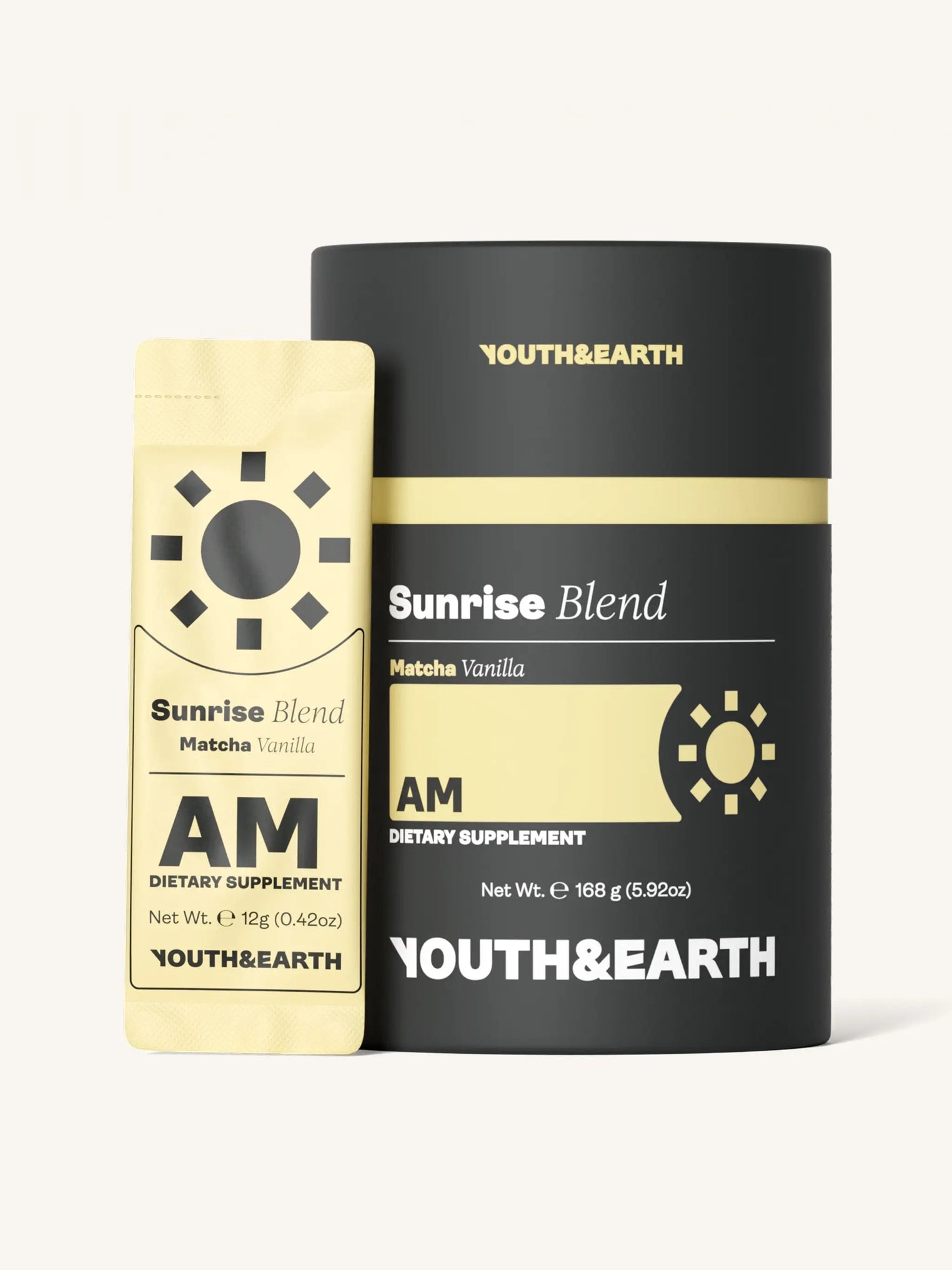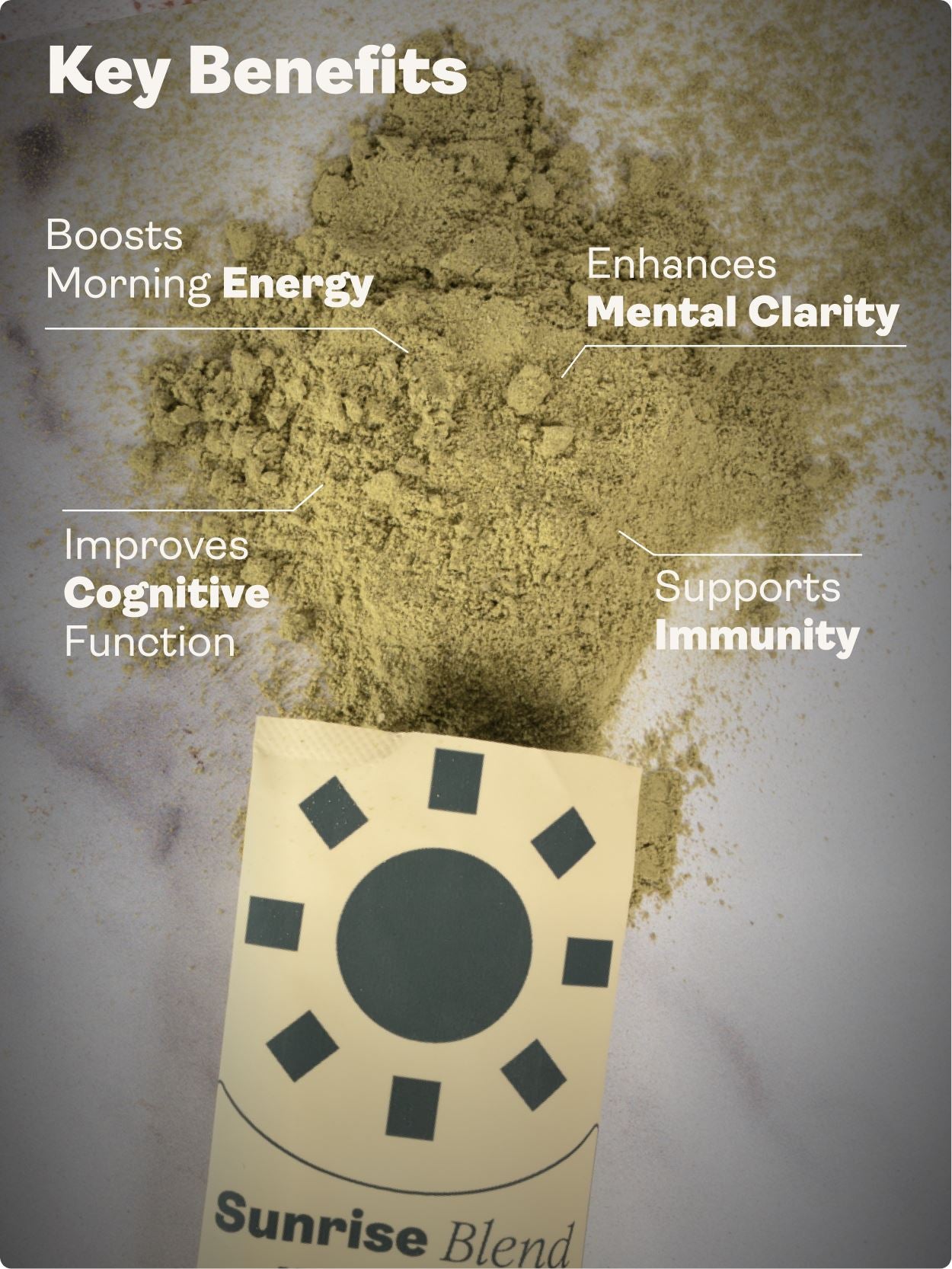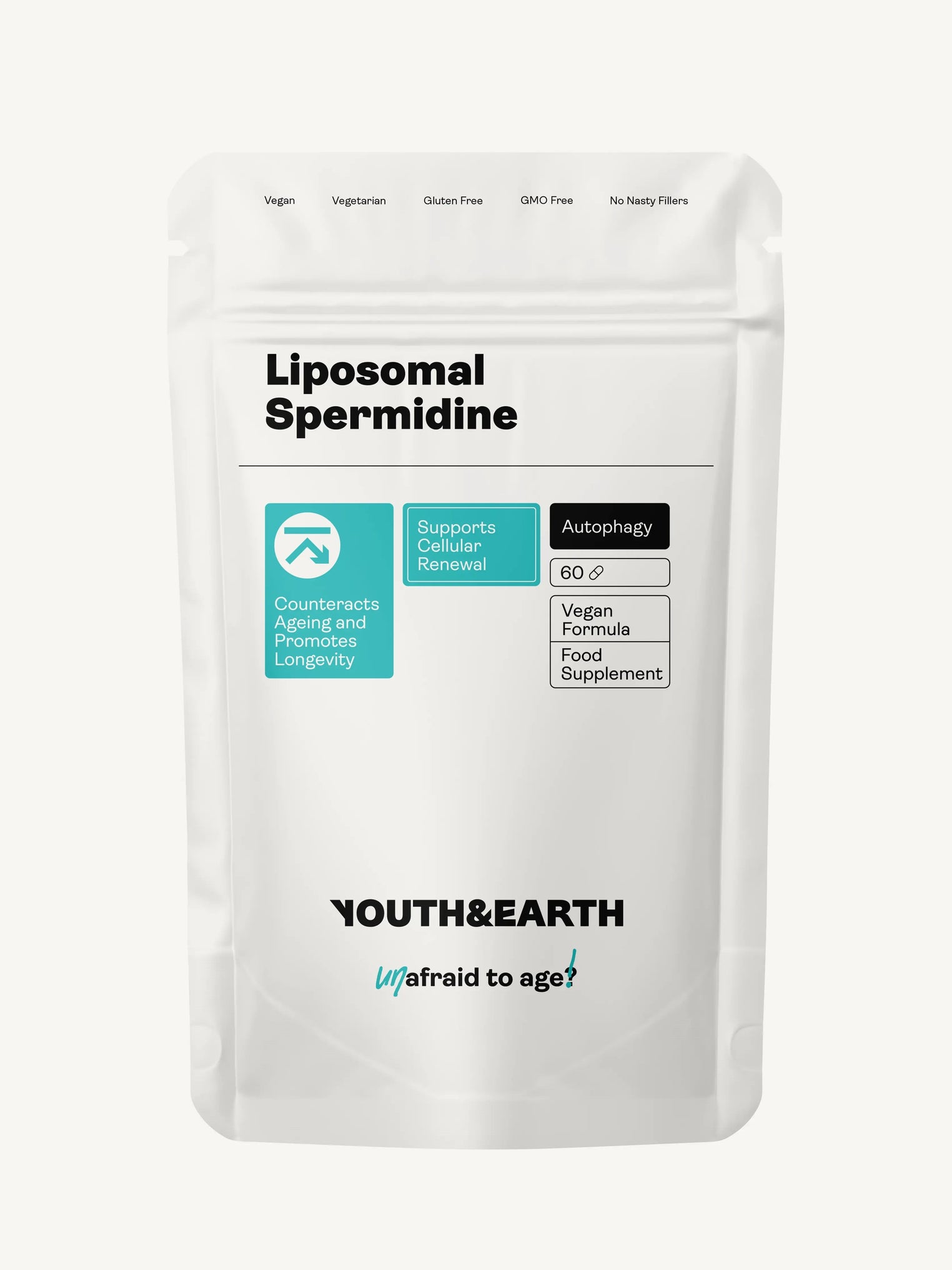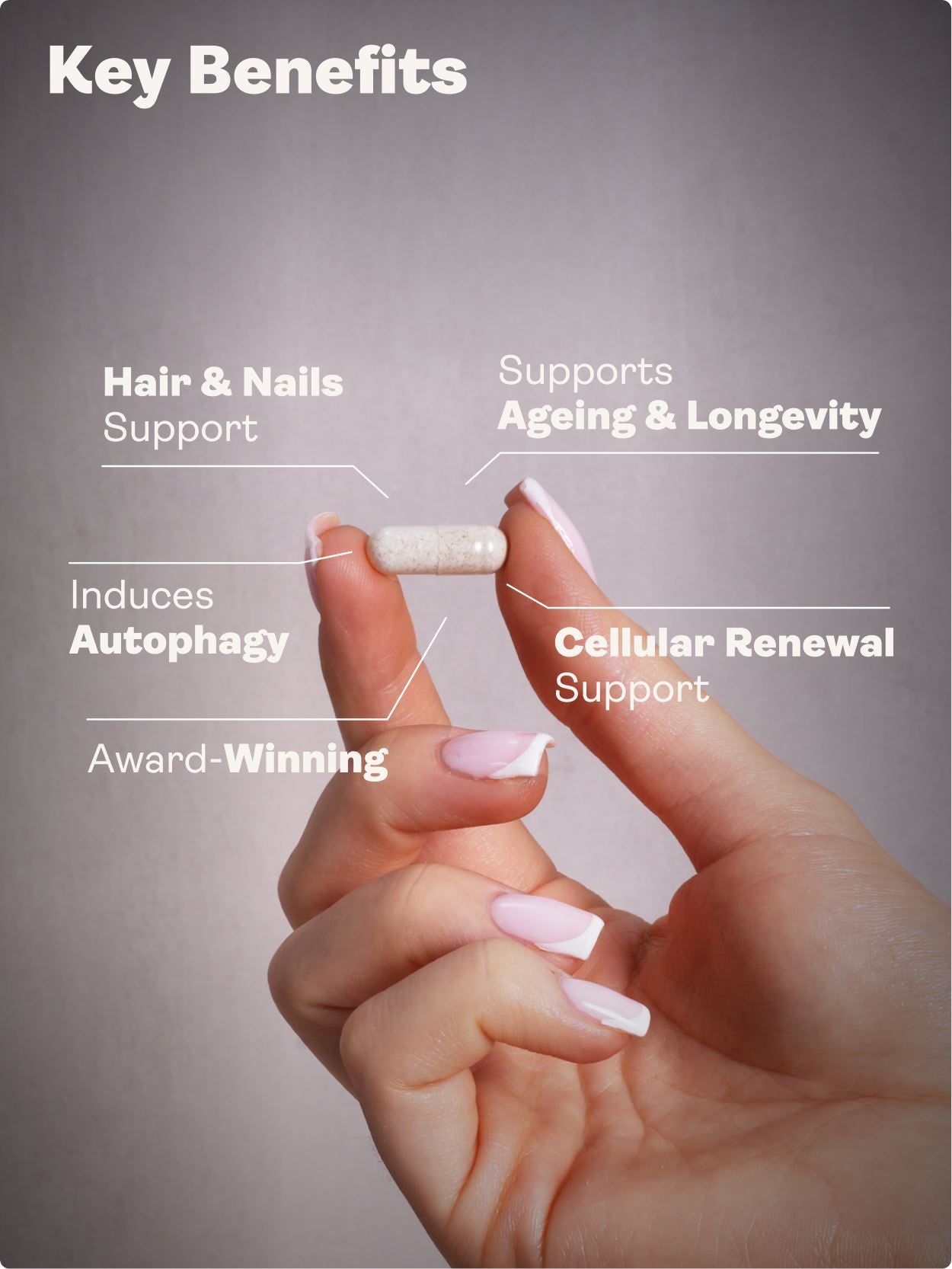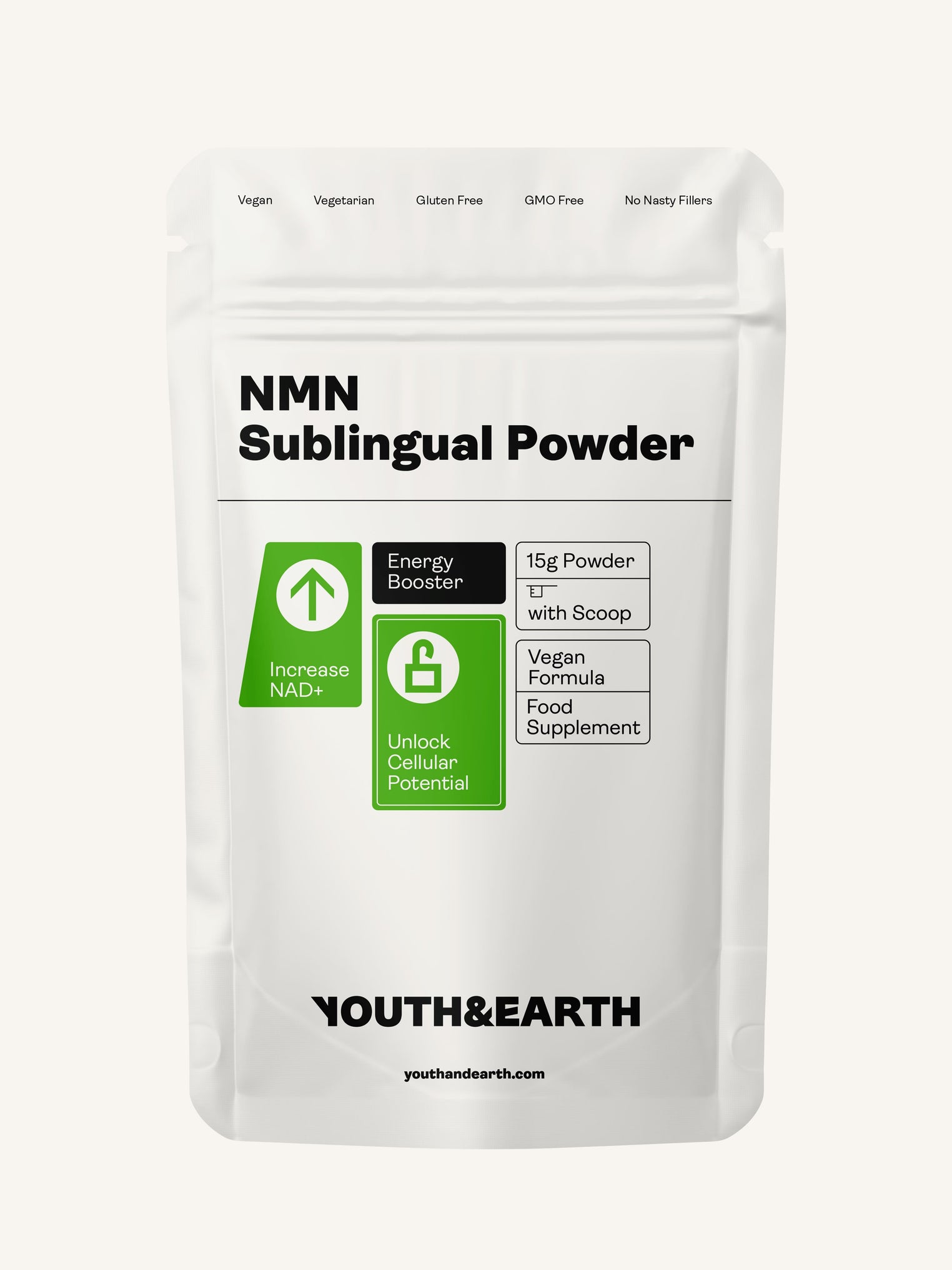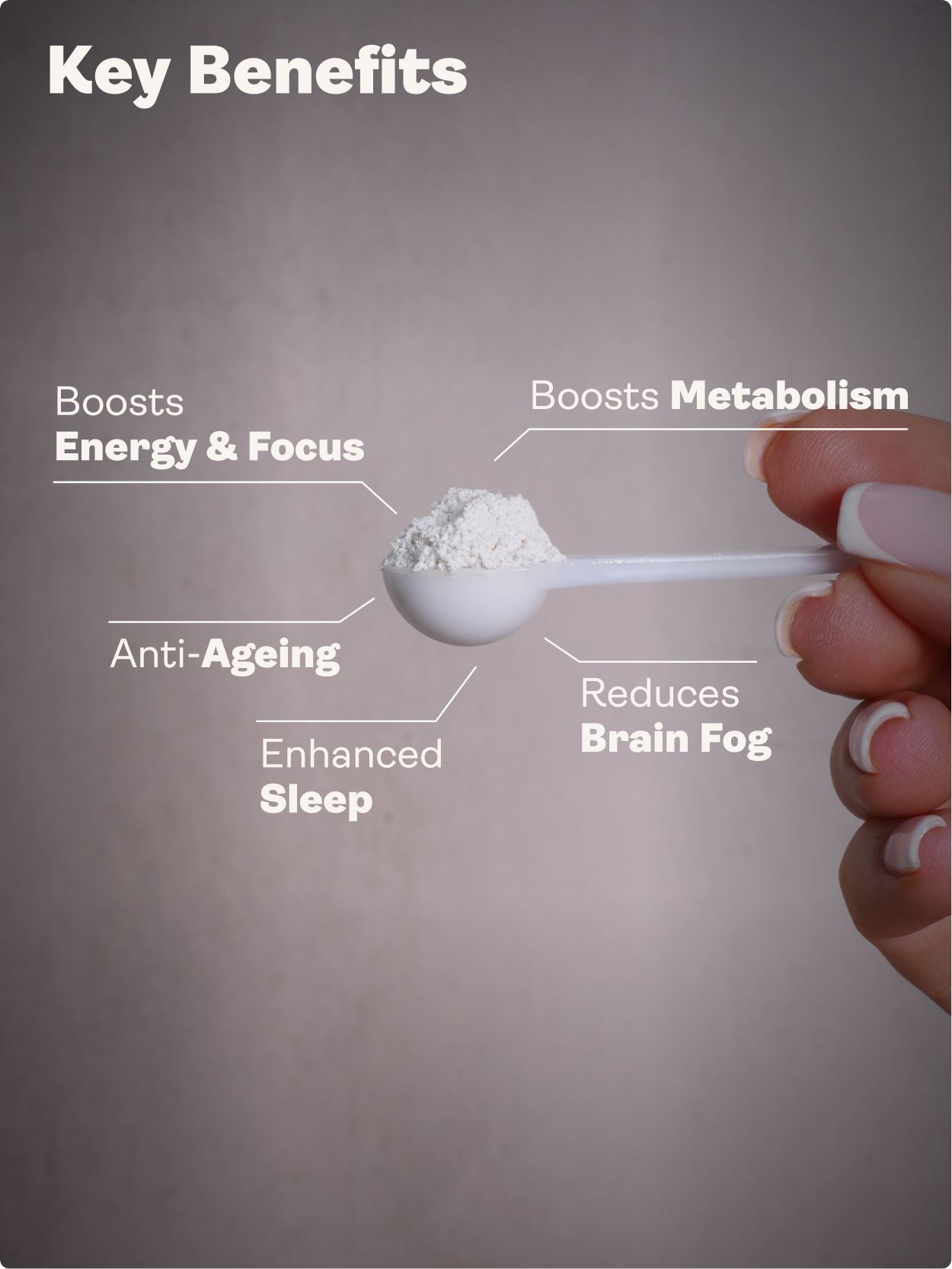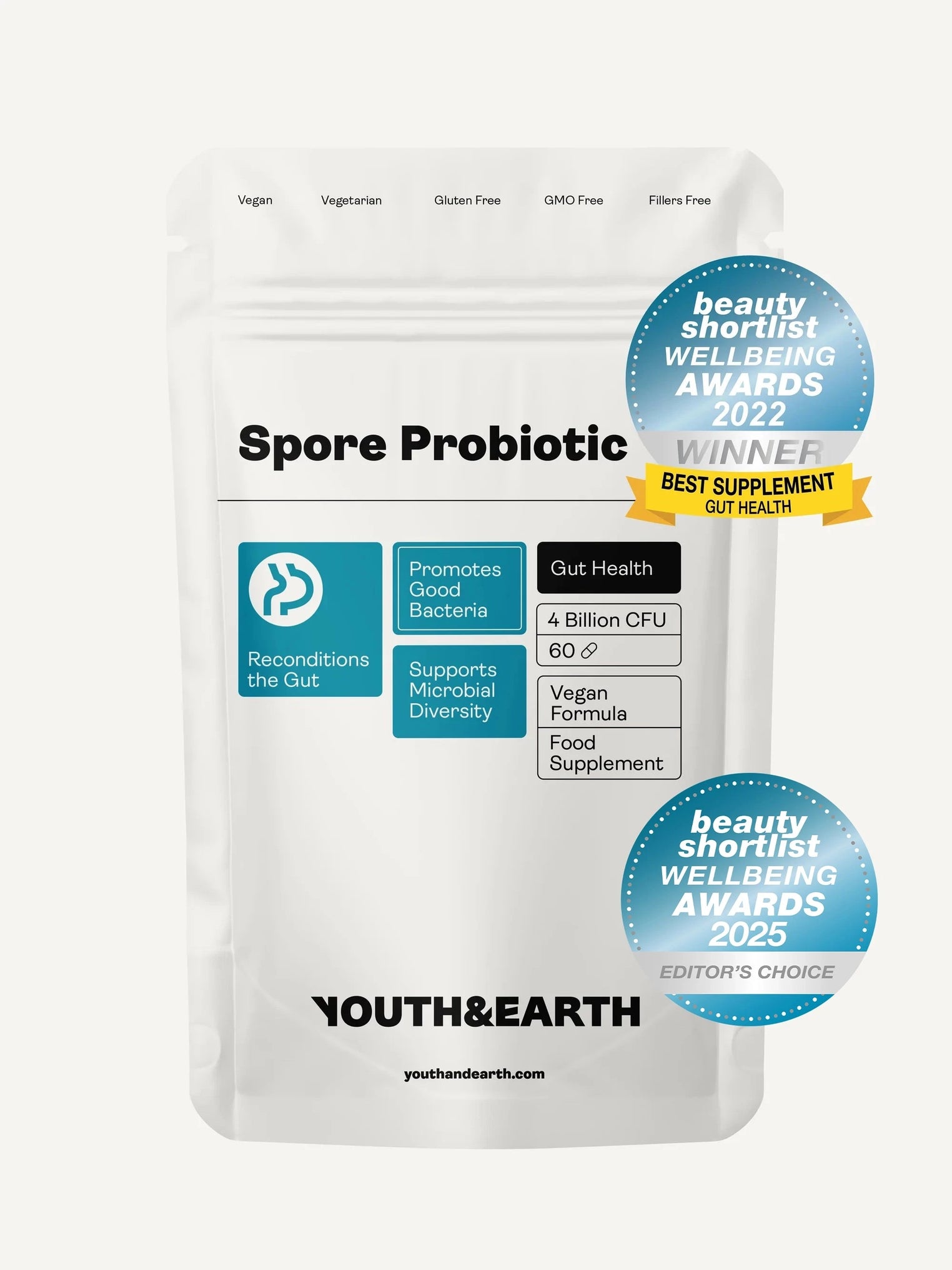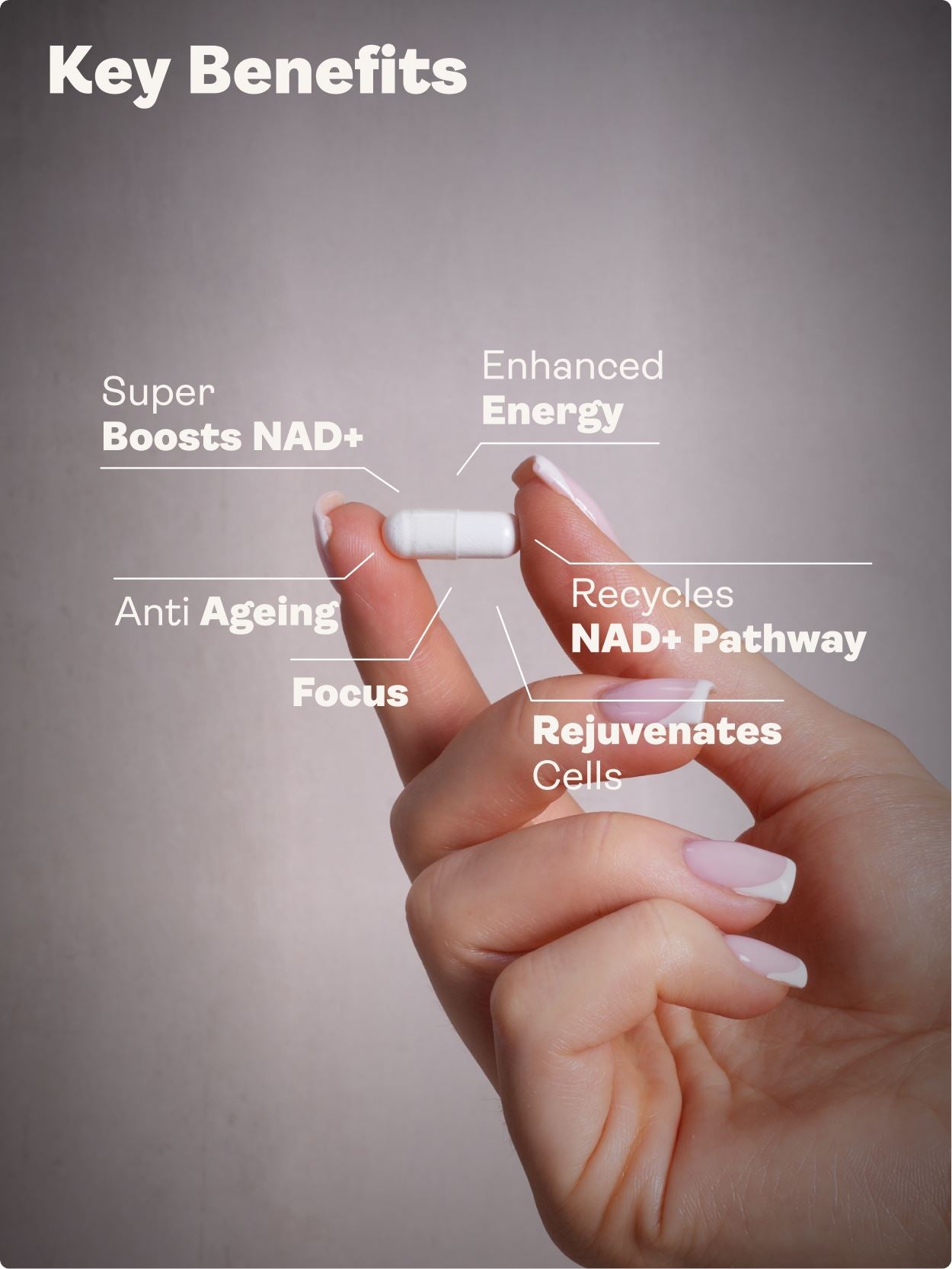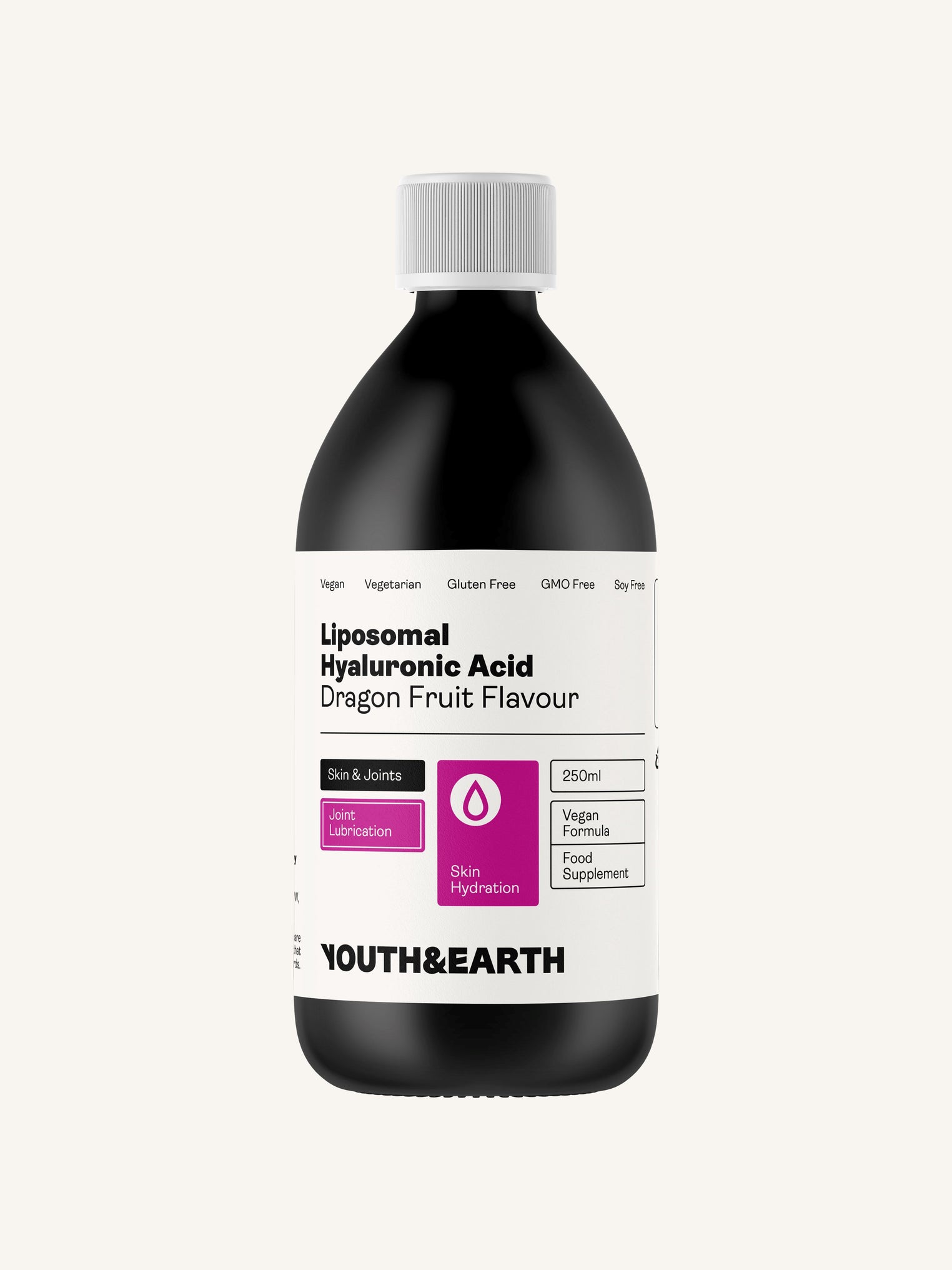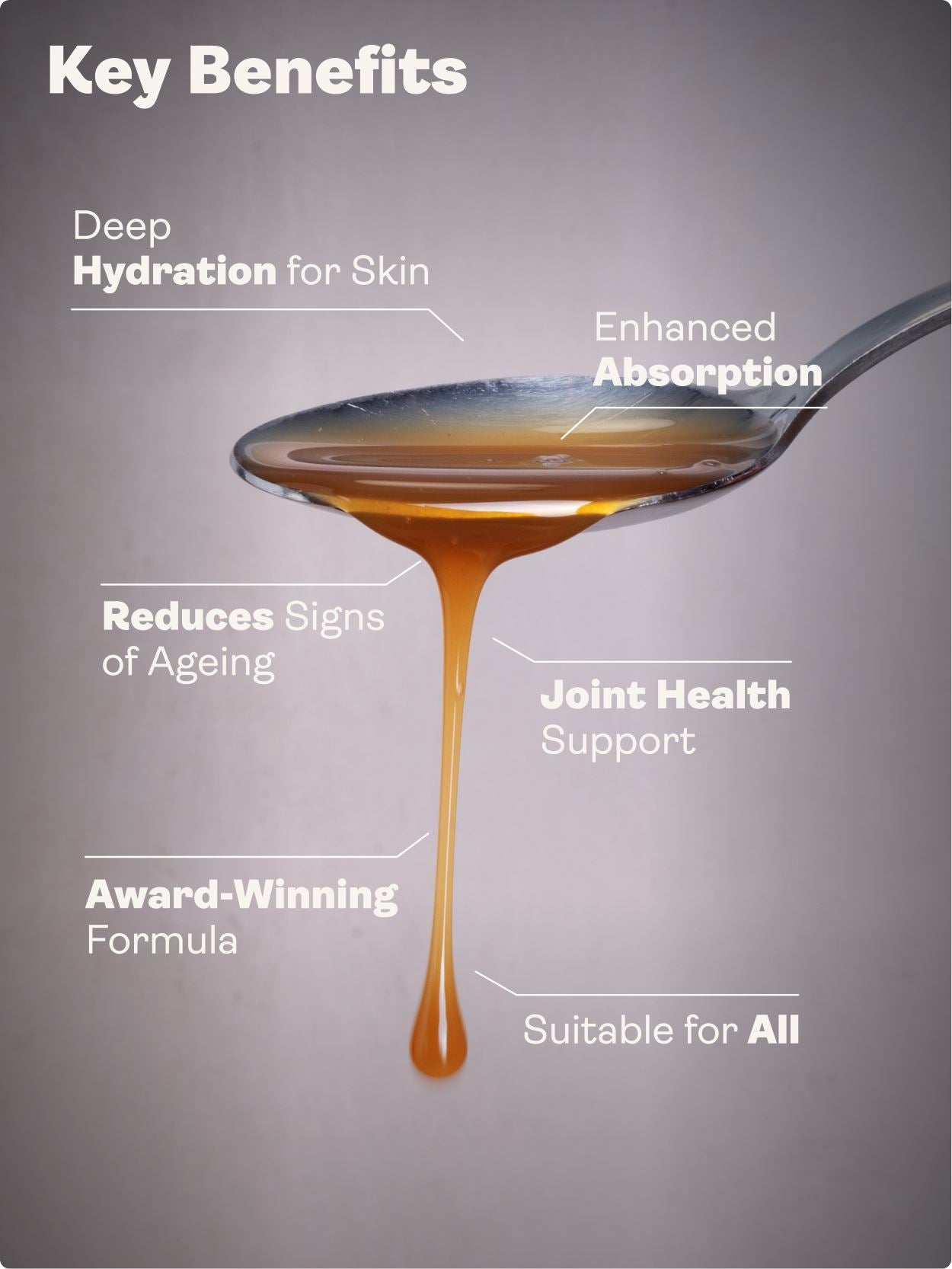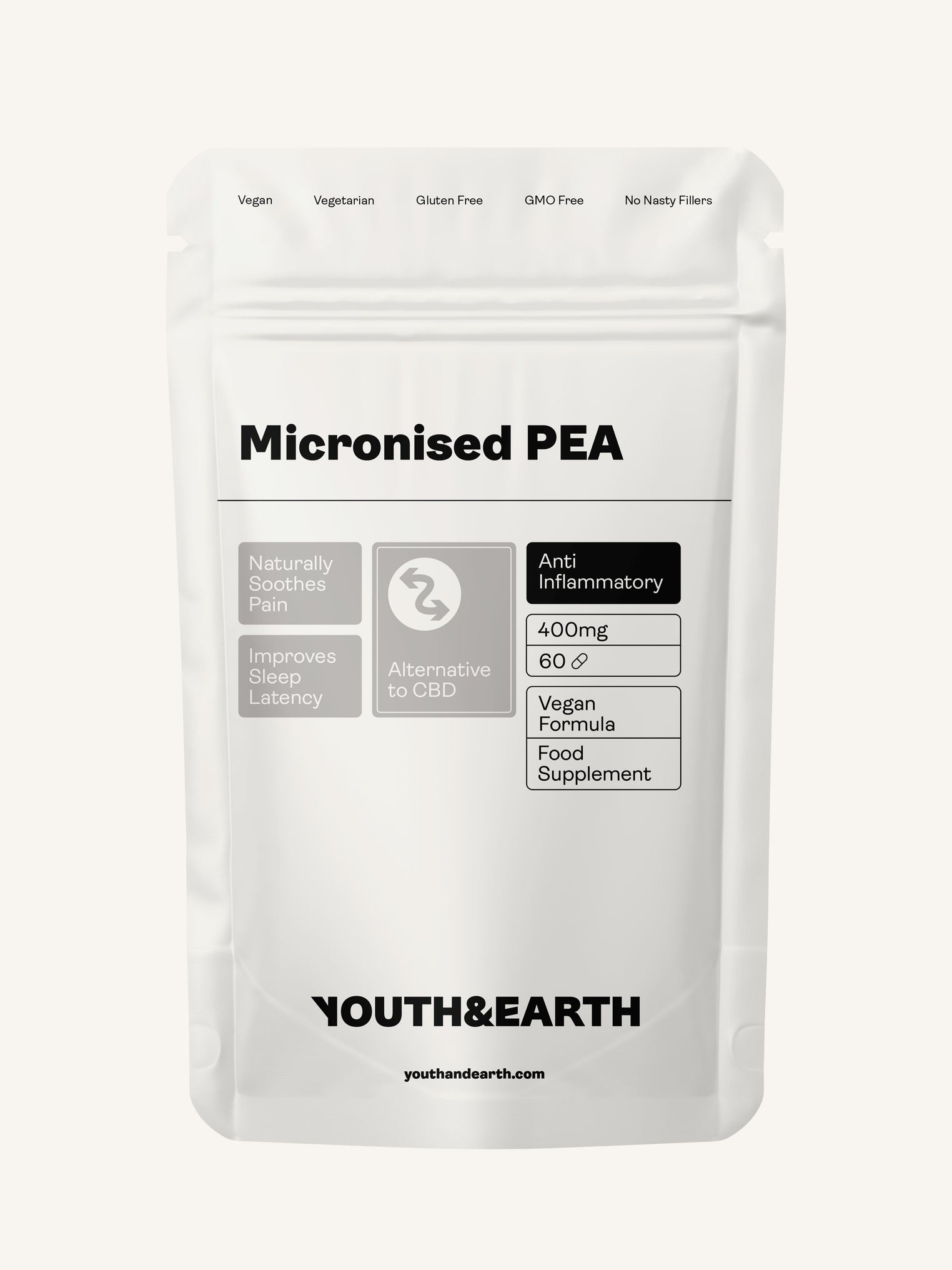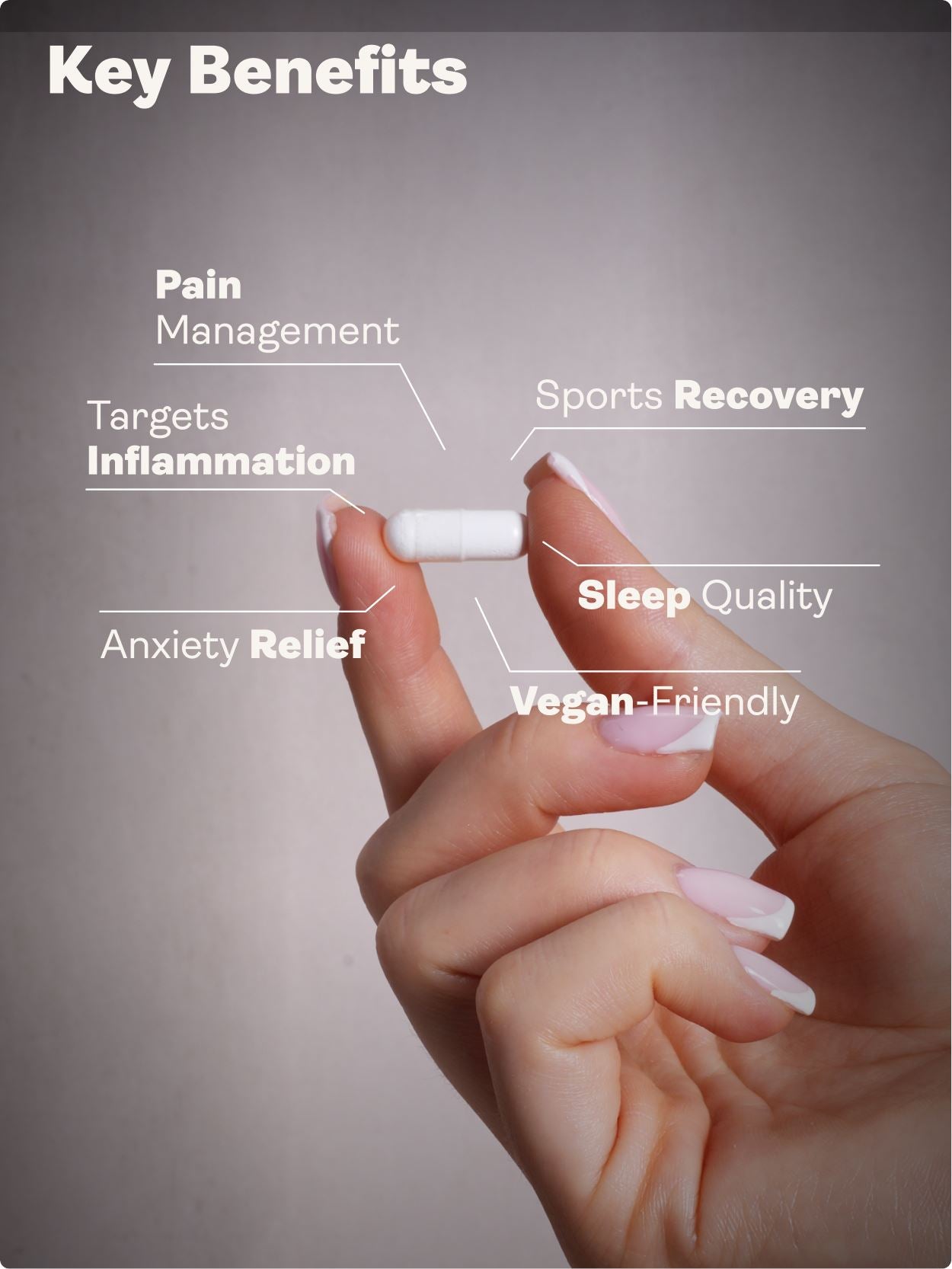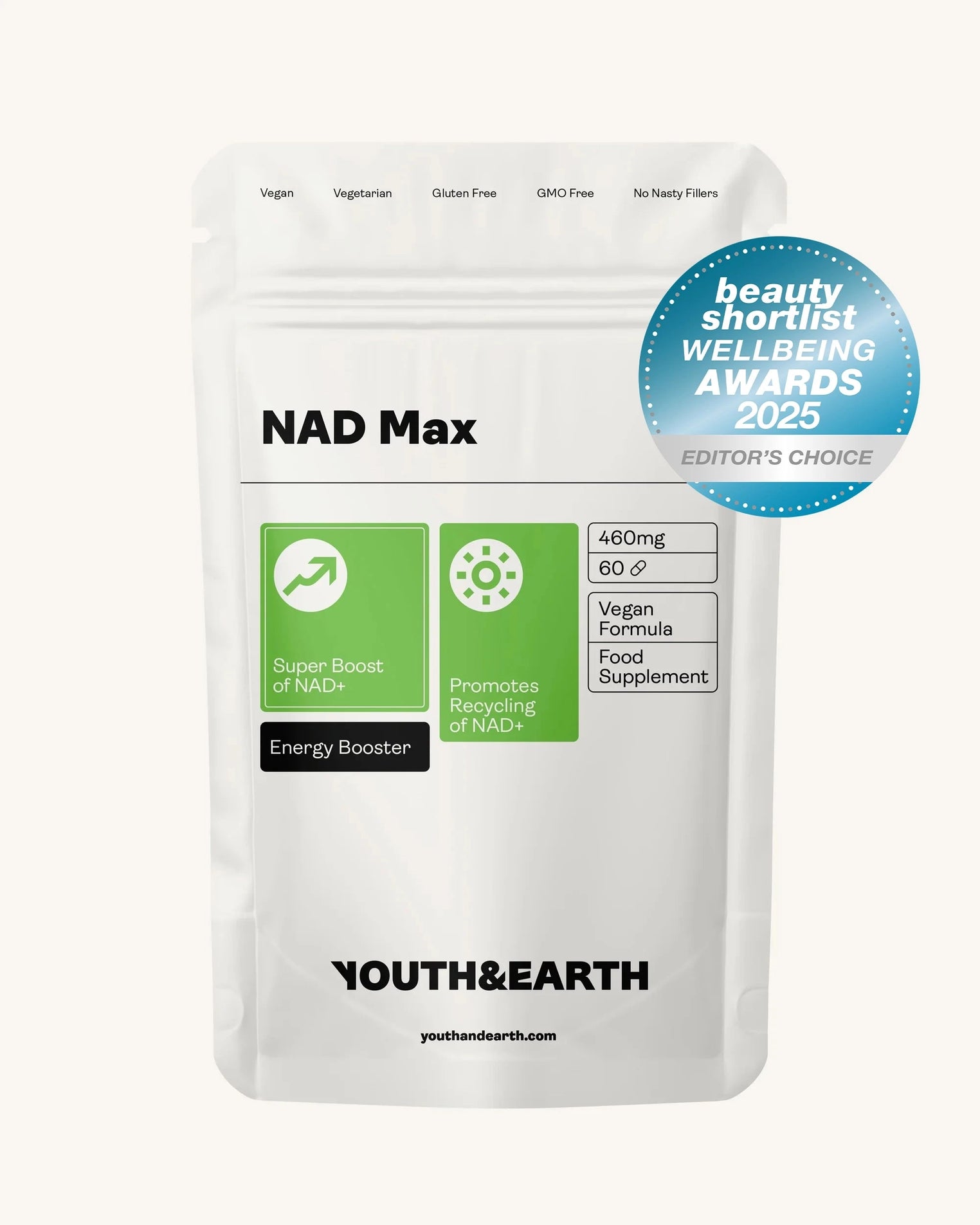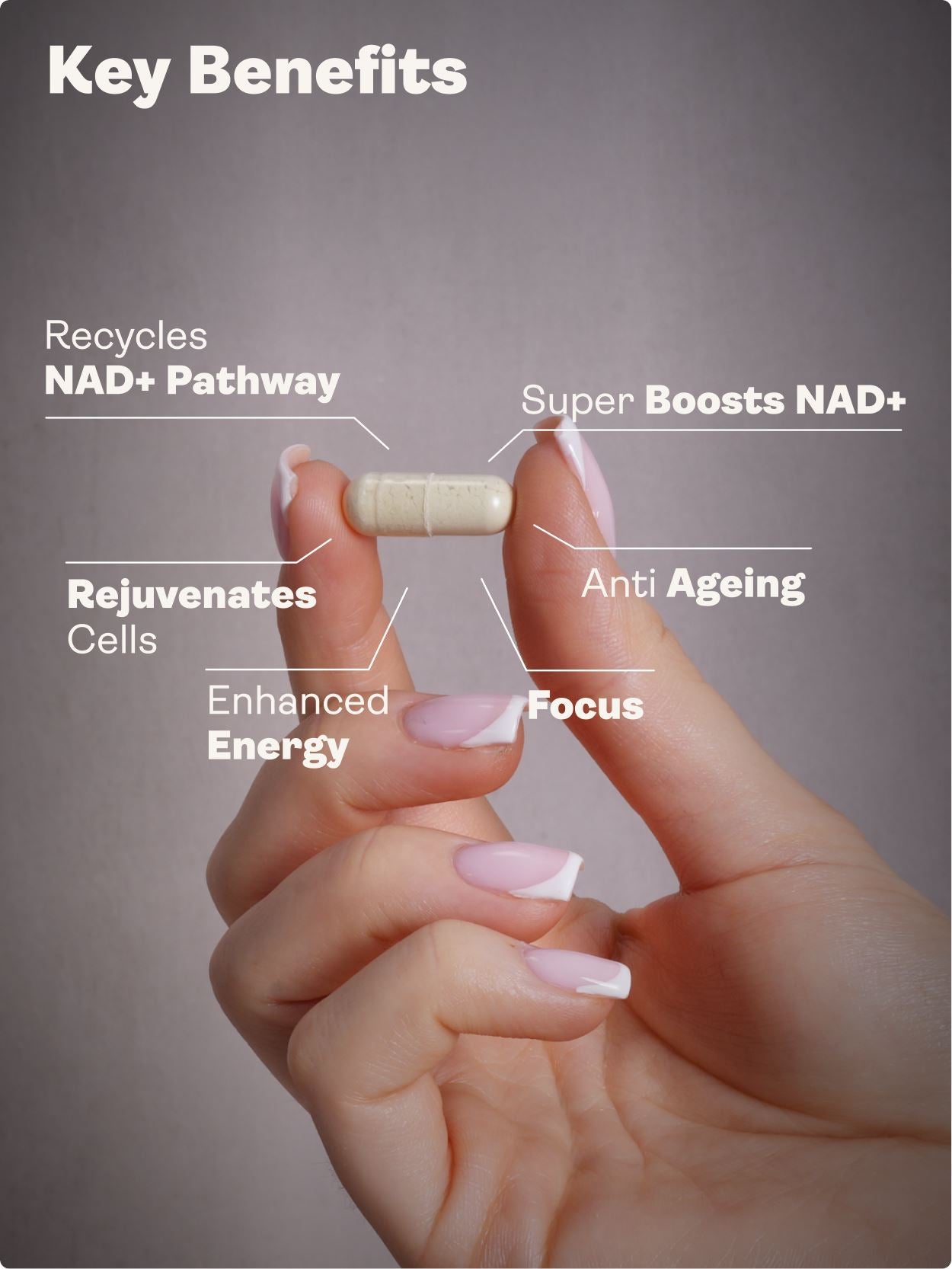What Makes Berberine a Powerful Longevity Supplement?
Berberine is rapidly emerging as one of the most effective natural compounds for supporting healthy ageing. It enhances blood sugar control, improves cholesterol levels, and directly activates key longevity pathways such as AMPK. Unlike pharmaceutical alternatives, berberine delivers these benefits with fewer side effects and without a prescription.
TL;DR (Summary)
- Berberine is a clinically validated compound that improves blood sugar, lipid metabolism, and inflammation.
- Metformin is a commonly prescribed diabetes drug with similar metabolic effects.
- Both activate AMPK—a master regulator of energy metabolism and cellular repair.
- Berberine is available over the counter and is well tolerated.
- RELEAF combines berberine, silymarin, and PQQ for unmatched support in energy, cognition, and cardiovascular health.
Table of Contents
What Is Berberine?
Berberine is a yellow alkaloid compound found in plants like barberry, tree turmeric, Oregon grape, and goldenseal. Traditionally used in Chinese and Ayurvedic medicine, it’s now recognised for its metabolic and cellular benefits.
Scientifically, berberine functions as an antioxidant, anti-inflammatory, and metabolic modulator. It influences pathways like AMPK, a central regulator of cellular energy, metabolism, and fat oxidation.
How Does Berberine Support Longevity?
Berberine activates AMPK (adenosine monophosphate-activated protein kinase)—often described as the cell’s energy sensor or metabolic master switch. When energy is low, AMPK initiates fat burning and enhances mitochondrial efficiency.
Longevity Mechanisms:
-
Boosts ATP production
-
Improves insulin signalling
-
Inhibits mTOR (mechanistic target of rapamycin)
-
Enhances autophagy (cellular clean-up)
These effects mimic fasting and caloric restriction, which are known to slow biological ageing.
Why Is Berberine Considered Anti-Ageing?
Ageing is associated with mitochondrial decline, chronic inflammation, insulin resistance, and metabolic dysfunction. Berberine helps counteract these hallmarks by:
-
Supporting healthy mitochondrial function
-
Reducing oxidative stress and systemic inflammation
-
Enhancing insulin sensitivity and glucose control
-
Modulating pathways that govern cellular repair and lifespan
By positively influencing these biological systems, berberine helps protect against age-related diseases and promotes healthier ageing from the inside out.
What Is Metformin and How Does It Compare?
Metformin is a synthetic derivative of the French lilac plant. It’s one of the most prescribed medications for managing type 2 diabetes and prediabetes.
Metformin also activates AMPK, reduces liver glucose production, and improves insulin sensitivity—making it similar to berberine in biological function. Research also suggests it may lower cancer risk and extend lifespan.
Comparison Table: Berberine vs Metformin
| Feature | Berberine (Natural) | Metformin (Prescription) |
|---|---|---|
| Blood Sugar Control | ✅ Effective | ✅ Effective |
| Activates AMPK | ✅ Yes (energy regulator) | ✅ Yes (energy regulator) |
| Gut Microbiome Impact | ✅ Supports microbial balance | ➖ Limited impact |
| Weight Loss Support | ✅ Backed by multiple studies | ➖ Variable outcomes |
| Cholesterol Reduction | ✅ LDL ↓, HDL ↑, triglycerides ↓ | ✅ LDL ↓, triglycerides ↓ |
| Side Effects | ⚠️ Mild GI effects (rare) | ⚠️ GI upset, B12 deficiency |
| Prescription Required | ❌ No | ✅ Yes |
Berberine vs Fasting: Pros and Cons
| Feature | Berberine Supplementation | Intermittent/Time-Restricted Fasting |
| AMPK Activation | ✅ Directly stimulates cellular AMPK | ✅ Indirectly activates via caloric deficit |
| mTOR Inhibition | ✅ Yes | ✅ Yes |
| Ease of Implementation | ✅ Easy to integrate, no schedule | ❌ Requires discipline and timing |
| Gut Health Benefits | ✅ Supports microbiome | ➖ Mixed; may stress gut if fasting is long |
| Blood Sugar Regulation | ✅ Clinically supported | ✅ Shown effective in studies |
| Nutrient Intake | ✅ Can include essential nutrients | ❌ Restricts intake windows |
| Cognitive Effects | ✅ Improved focus via PQQ synergy | ✅ Enhanced autophagy may support cognition |
| Sustainability | ✅ Daily routine possible | ❌ Difficult for some to maintain long term |
While fasting has systemic anti-aging benefits, berberine offers a targeted and more accessible way to activate longevity pathways.
How Do They Regulate Blood Sugar?
Berberine Mechanisms:
-
Increases glucose uptake via AMPK activation
-
Reduces insulin resistance in tissues
-
Slows digestion of carbohydrates in the gut
-
Improves microbiome health
-
Decreases liver glucose output
Study Highlight: A 2008 study (PMID: 18442638) found that 1g/day of berberine significantly reduced fasting glucose levels in type 2 diabetics.
Metformin Mechanisms:
-
Reduces hepatic gluconeogenesis (glucose production)
-
Enhances peripheral glucose uptake
-
Slightly reduces intestinal glucose absorption
Both improve insulin sensitivity, but berberine offers broader effects on digestion and gut health.
Can They Support Weight Loss?
Berberine:
-
Stimulates mitochondrial energy output
-
Regulates leptin and adiponectin
-
Reduces fat mass and BMI
Study 1: 12-week trial (PMID: 22531139) with 500 mg berberine TID resulted in ~5 lbs weight loss and a 23% drop in triglycerides.
Study 2: 3-month trial in metabolic syndrome patients lowered BMI from 31.5 to 27.4 (PMID: 19839020).
Metformin:
-
Mixed weight-loss results
-
More effective in insulin-resistant populations
Research Note: A 2022 review (PMID: 35695912) highlights modest weight loss in some non-diabetic individuals.
Do They Lower Cholesterol?
Berberine:
-
Increases LDL receptor expression in liver cells
-
Lowers total cholesterol and triglycerides
-
Elevates HDL cholesterol
Metformin:
-
Activates AMPK to reduce lipid synthesis
-
Lowers LDL and very-low-density lipoproteins (VLDL)
Recent Study: A 2023 meta-analysis (PMID: 37390190) confirmed berberine’s LDL-lowering effects are on par with statins in some cases.
Which Has Fewer Side Effects?
Metformin:
-
Common: nausea, diarrhea, abdominal discomfort
-
Risks: B12 deficiency, lactic acidosis (rare)
Berberine:
-
Mild GI symptoms (constipation, bloating)
-
Not advised during pregnancy or breastfeeding
-
May lower blood pressure (use caution if hypotensive)
Formulation Tip: Our RELEAF supplement combines berberine with silymarin to improve absorption and reduce GI distress.
Why Supplement with Berberine?
Berberine supports longevity by:
-
Activating AMPK (energy metabolism)
-
Improving glucose and lipid profiles
-
Supporting gut and liver health
When paired with:
-
Silymarin (milk thistle): boosts bioavailability
-
PQQ: enhances mitochondrial biogenesis and cognitive function
Together, they form a powerful triad for healthy ageing in RELEAF.
Science Snapshot
Berberine’s Anti-Diabetic Action:
A 2008 study (PMID: 18442638) found berberine lowered fasting blood sugar to normal levels in people with type 2 diabetes. Comparable to metformin.
Weight Loss Efficacy:
A 2009 study (PMID: 19839020) showed a BMI drop of over 4 points in metabolic syndrome patients taking berberine.
Lipid Profile Support:
A 2023 meta-analysis (PMID: 37390190) confirmed significant reductions in LDL cholesterol with berberine supplementation.
Longevity Mechanism:
Berberine mimics caloric restriction by activating AMPK and inhibiting mTOR—hallmarks of longevity pathways.
Conclusion
Berberine and metformin both activate energy-regulating pathways like AMPK, reduce blood glucose and cholesterol, and show promise in supporting metabolic and cellular health.
However, berberine stands out:
-
It’s plant-derived and over-the-counter
-
Offers gut and mitochondrial benefits
-
Carries fewer risks than long-term metformin use
These longevity pathways do not act in isolation. Combining compounds like berberine, silymarin, and PQQ addresses multiple hallmarks of aging for optimal healthspan.
FAQs
Is berberine as effective as metformin?
Yes. Clinical studies show comparable blood sugar and lipid-lowering benefits, often without prescription side effects.
Do I need a prescription for berberine?
No. Berberine is available as a dietary supplement in most countries.
Can berberine improve energy levels?
Yes. Through AMPK activation, it boosts mitochondrial function and ATP output.
Is it safe to combine berberine with metformin?
Consult your doctor first. Both lower glucose and may amplify each other’s effects.
Does berberine improve gut health?
Yes. It slows carbohydrate absorption and supports microbial balance.
Glossary of Key Terms
-
AMPK: An enzyme that regulates energy metabolism by activating fat burning and reducing energy-consuming processes.
-
mTOR: A nutrient-sensing protein linked to growth and aging; inhibited during fasting.
-
Gluconeogenesis: The liver’s process of producing glucose from non-carbohydrate sources.
-
Insulin Sensitivity: The ability of cells to respond effectively to insulin.
-
HDL/LDL: Types of cholesterol; HDL is "good," LDL is "bad."
-
PQQ: A compound that stimulates new mitochondria formation.
-
Silymarin: A liver-protective extract from milk thistle that enhances nutrient absorption.
About the Author
Ed Van Harmelen is the founder of Youth & Earth and a passionate advocate for longevity since 2017. He has been featured in numerous podcasts and wellness publications for his insights on healthy ageing, biohacking, and the science behind supplements. Ed is widely regarded as a pioneer in bringing cutting-edge longevity tools to everyday consumers, making the benefits of advanced anti-ageing science both accessible and actionable.
Medically Reviewed By:
Mina Stanisavljevic, M.Sc. in Molecular Biology and Physiology, University of Belgrade
Mina is a Science advisor at Youth & Earth and OptimallyMe. Mina specialises in cellular metabolism, healthy ageing, and evidence-based supplement strategies.
Last Updated: 2025-07-12





